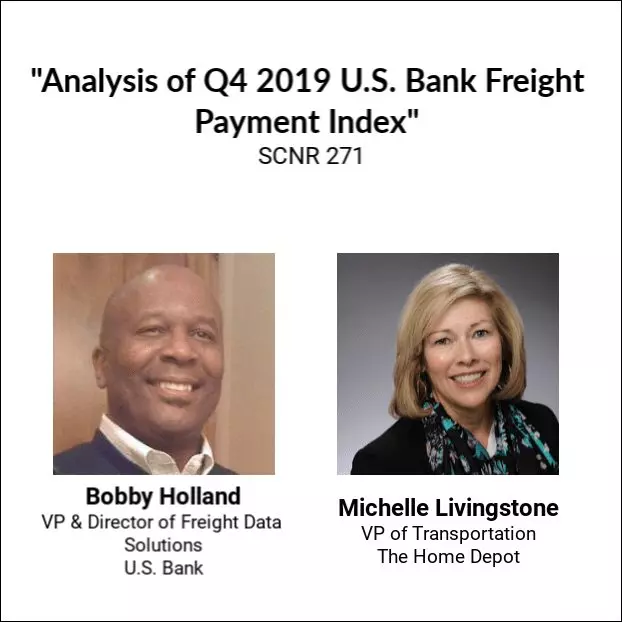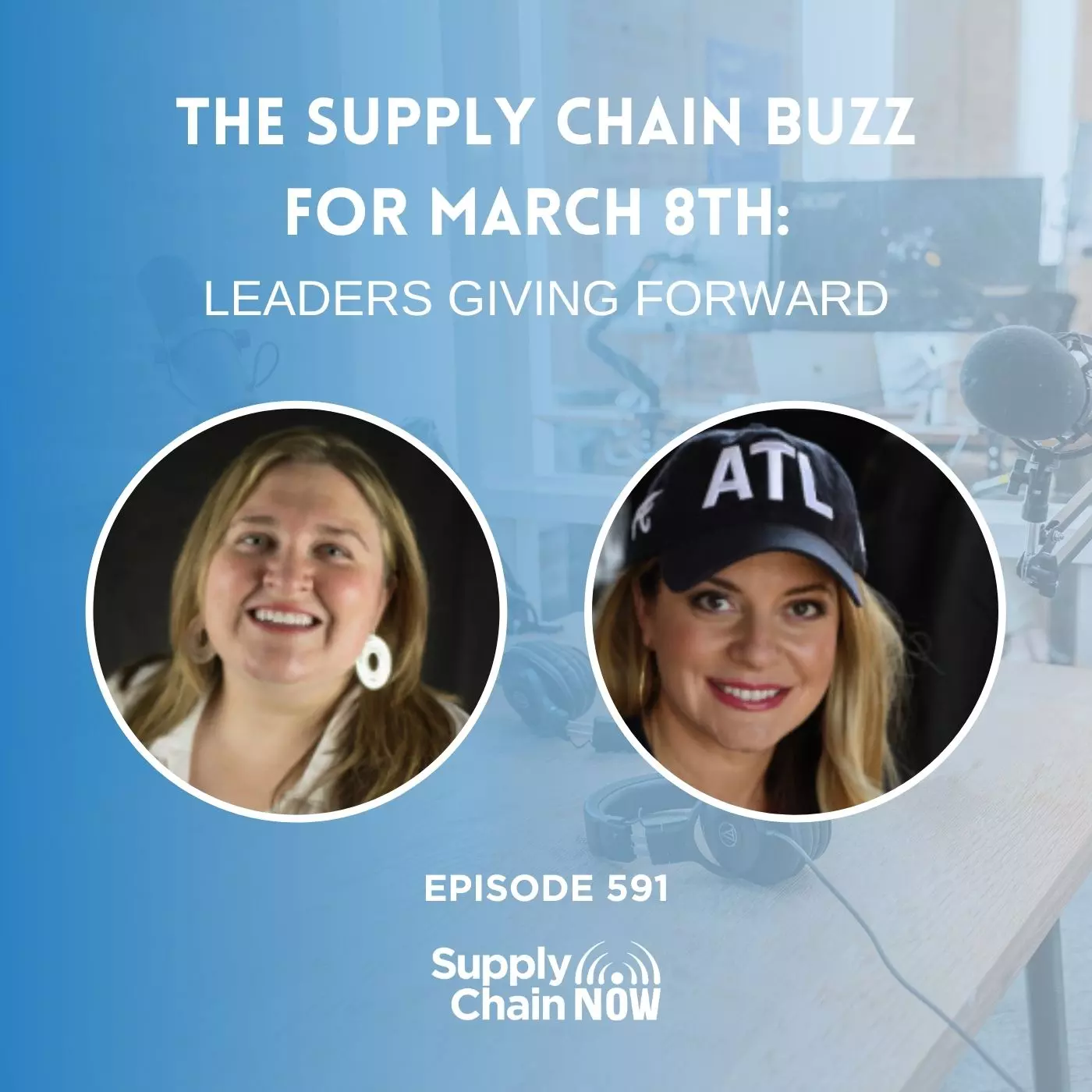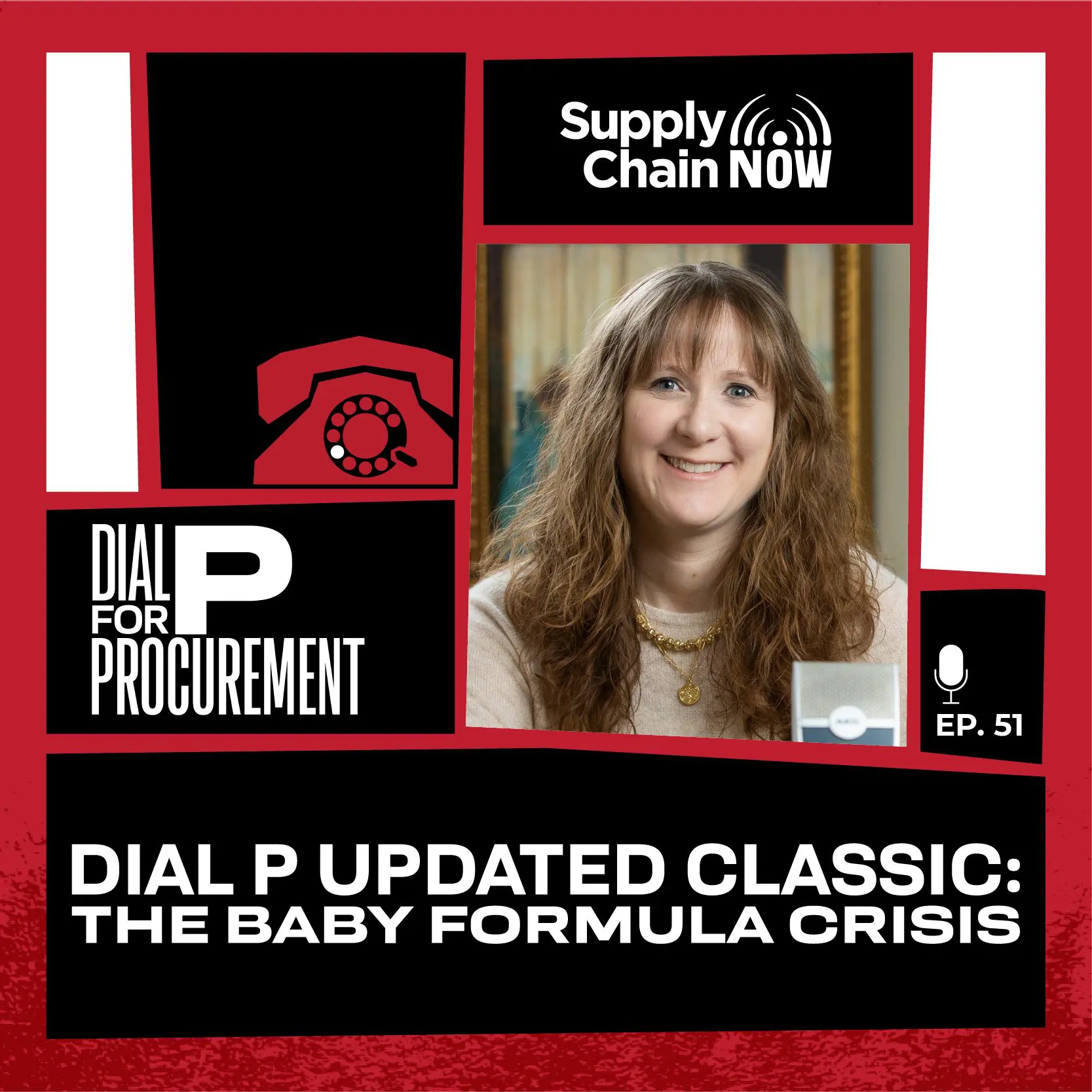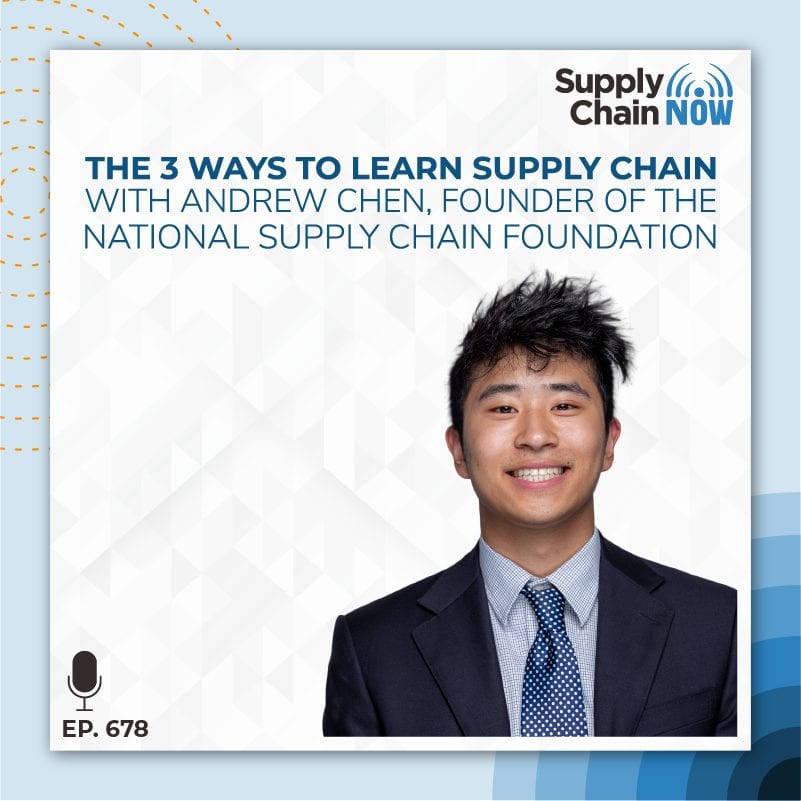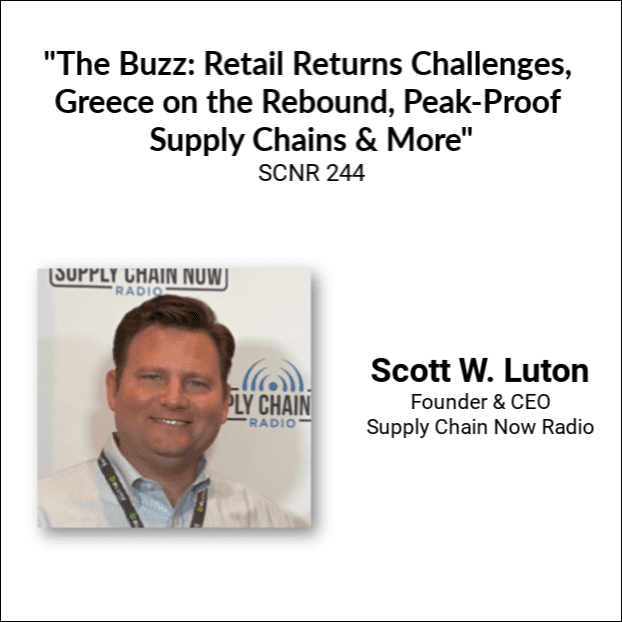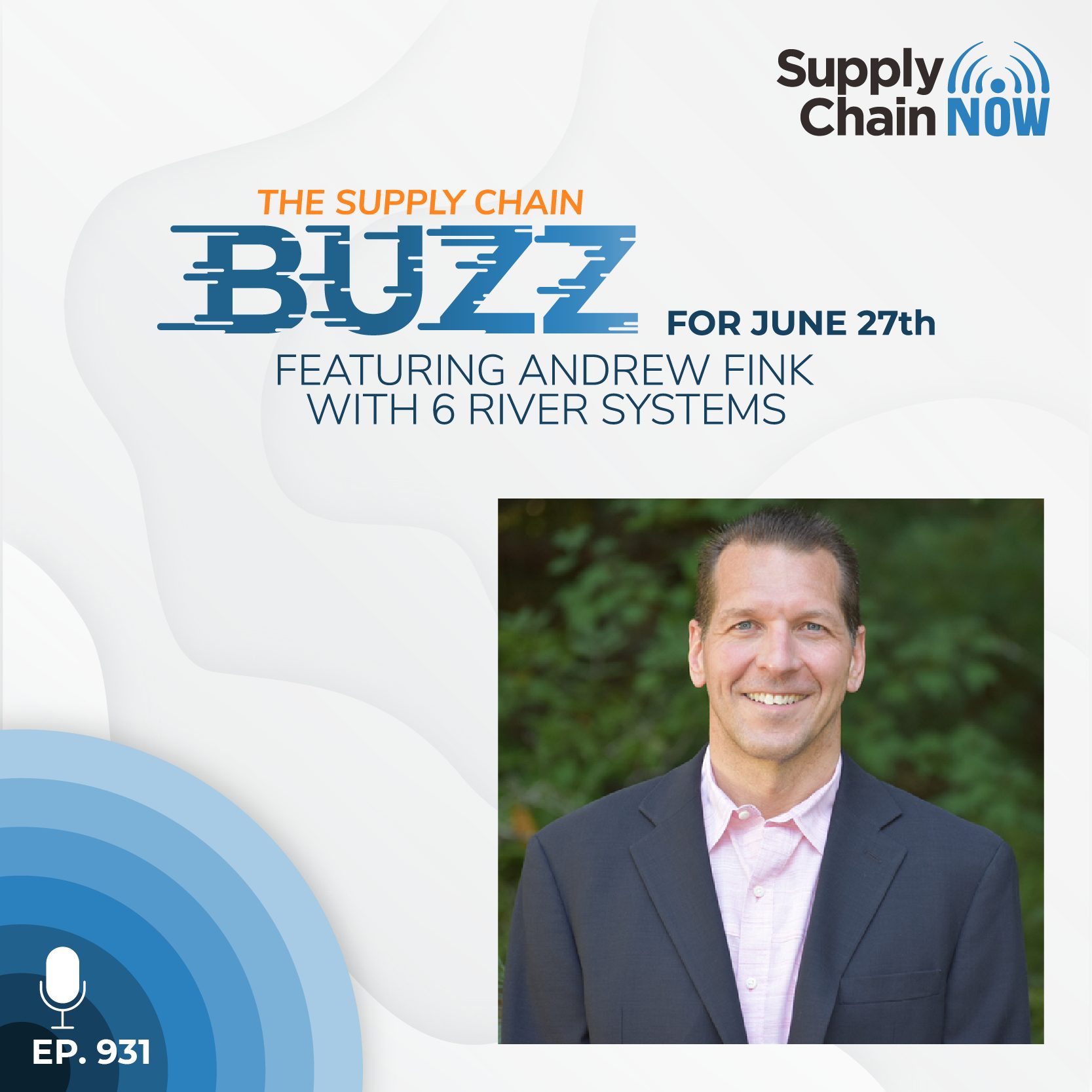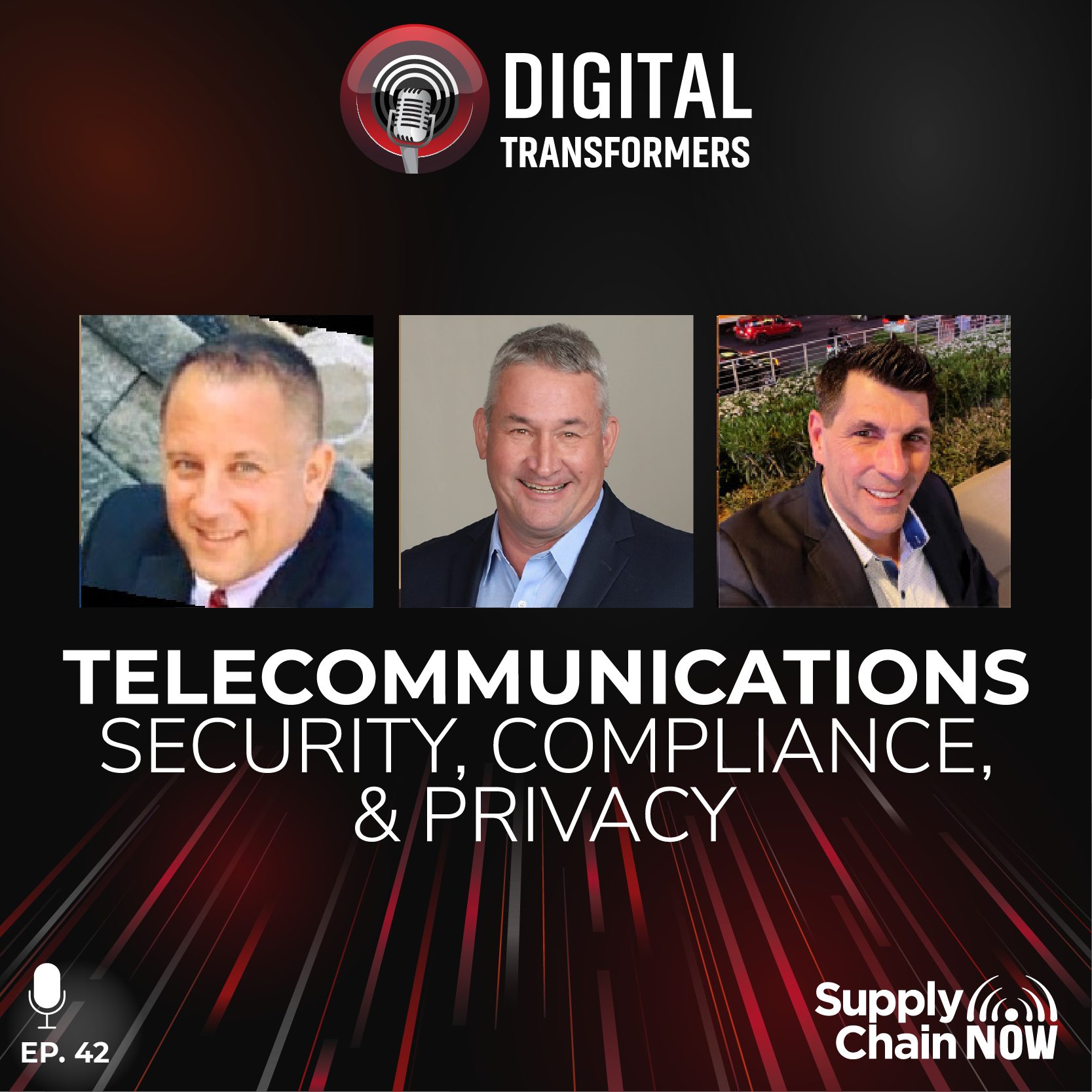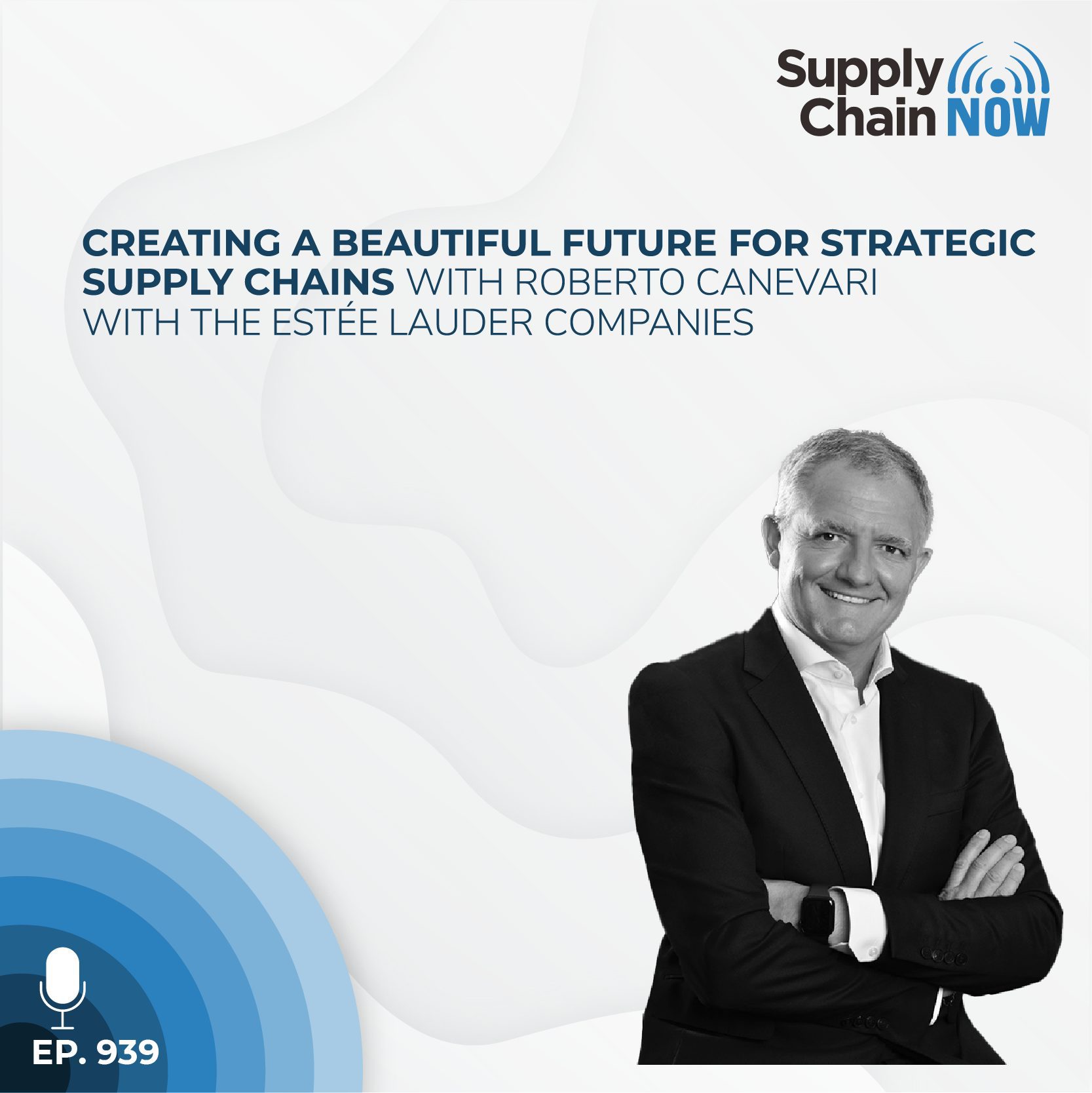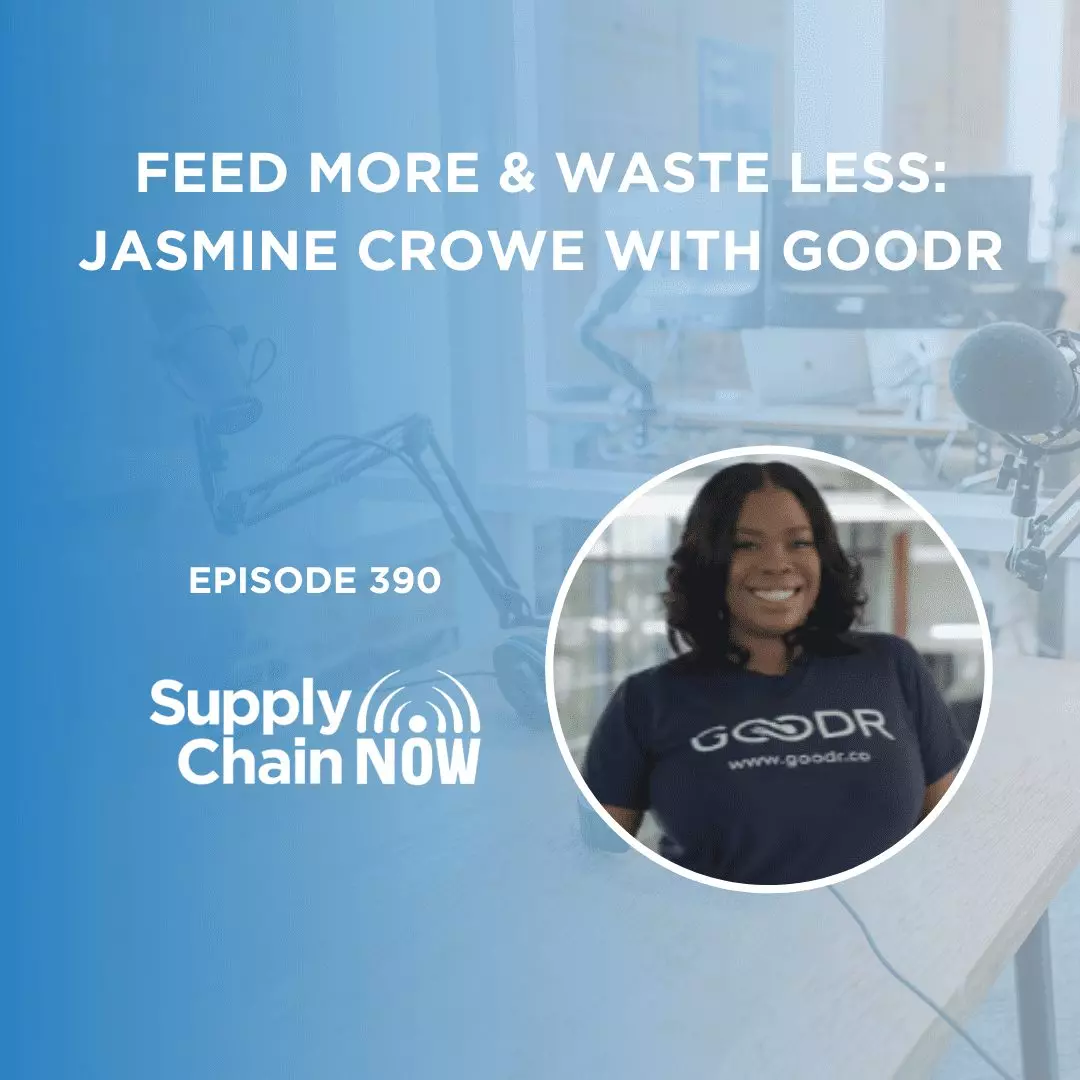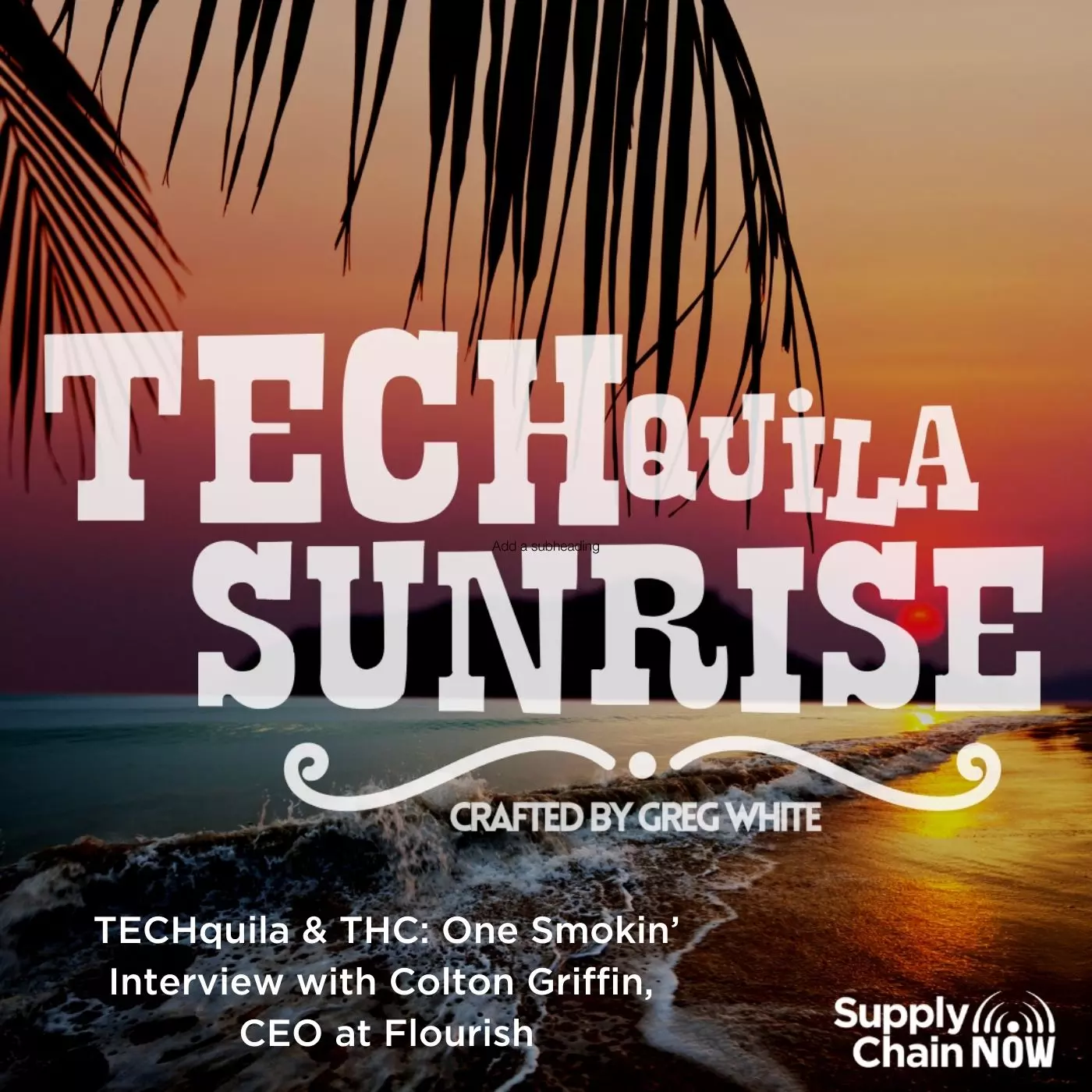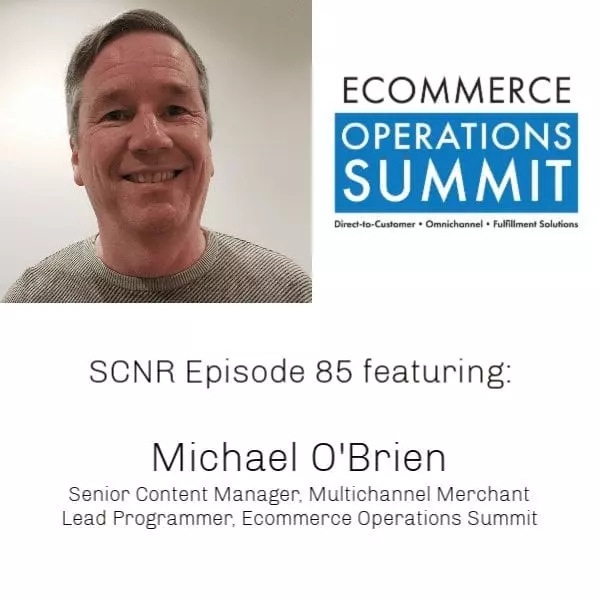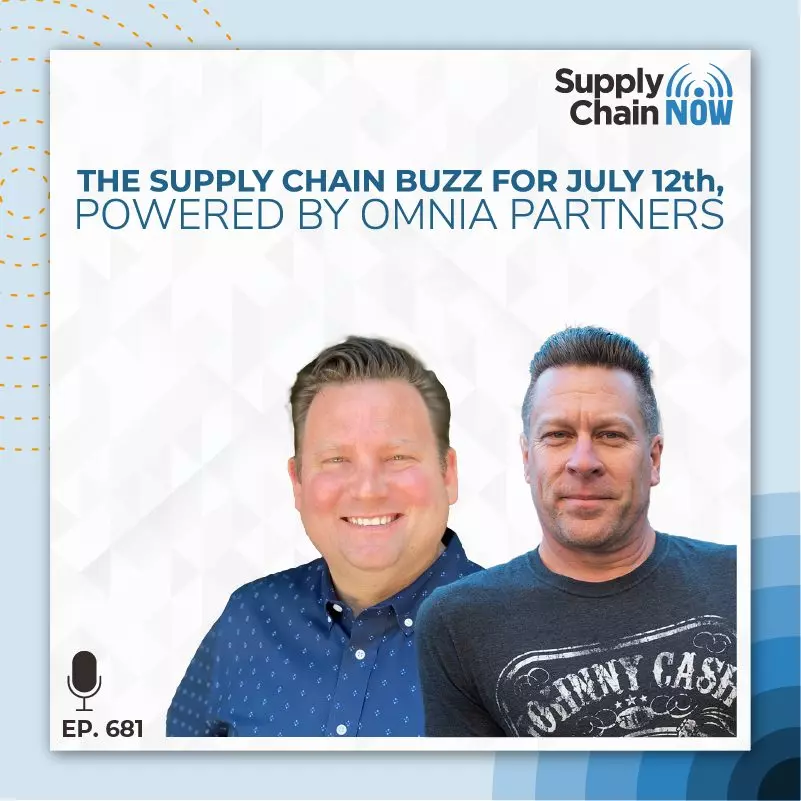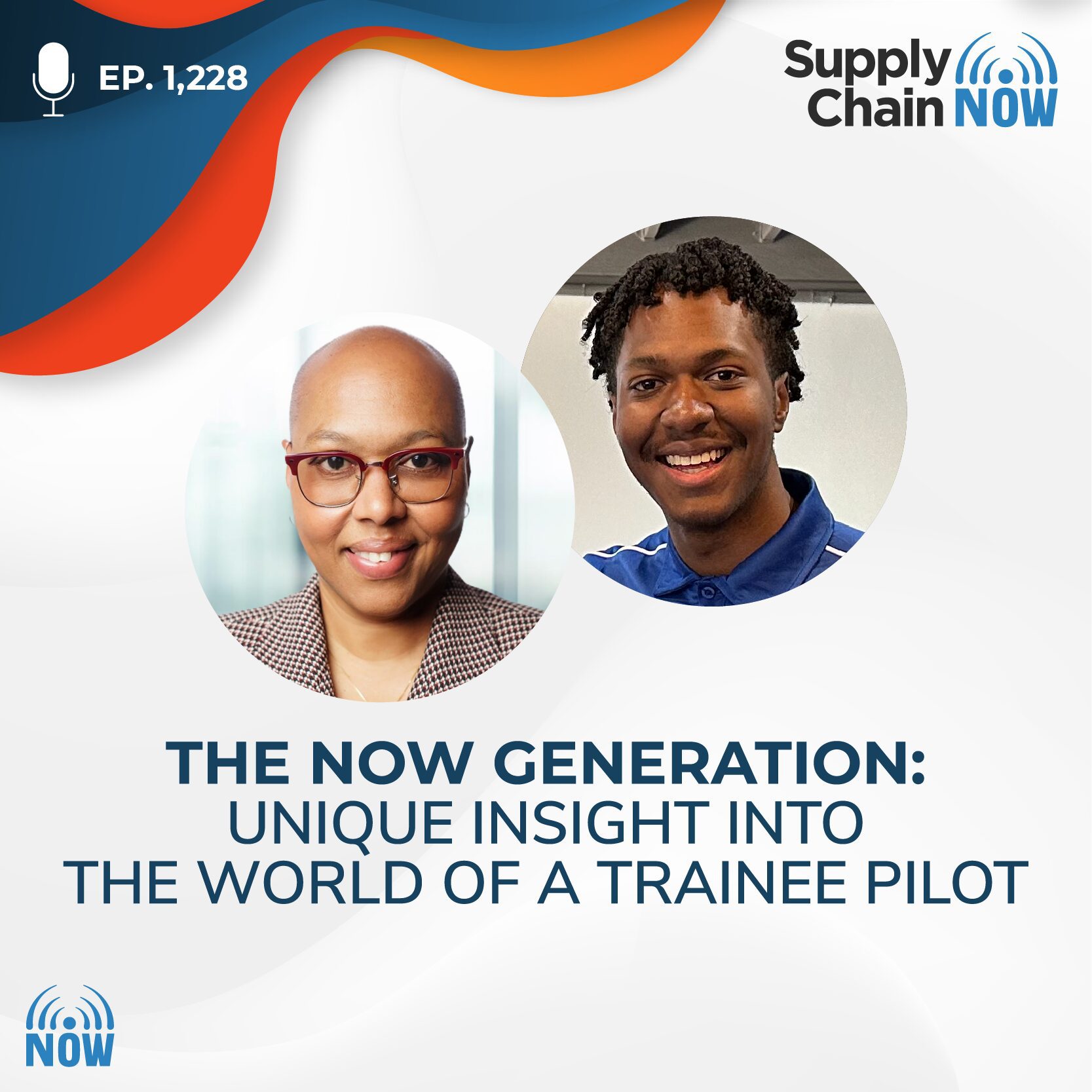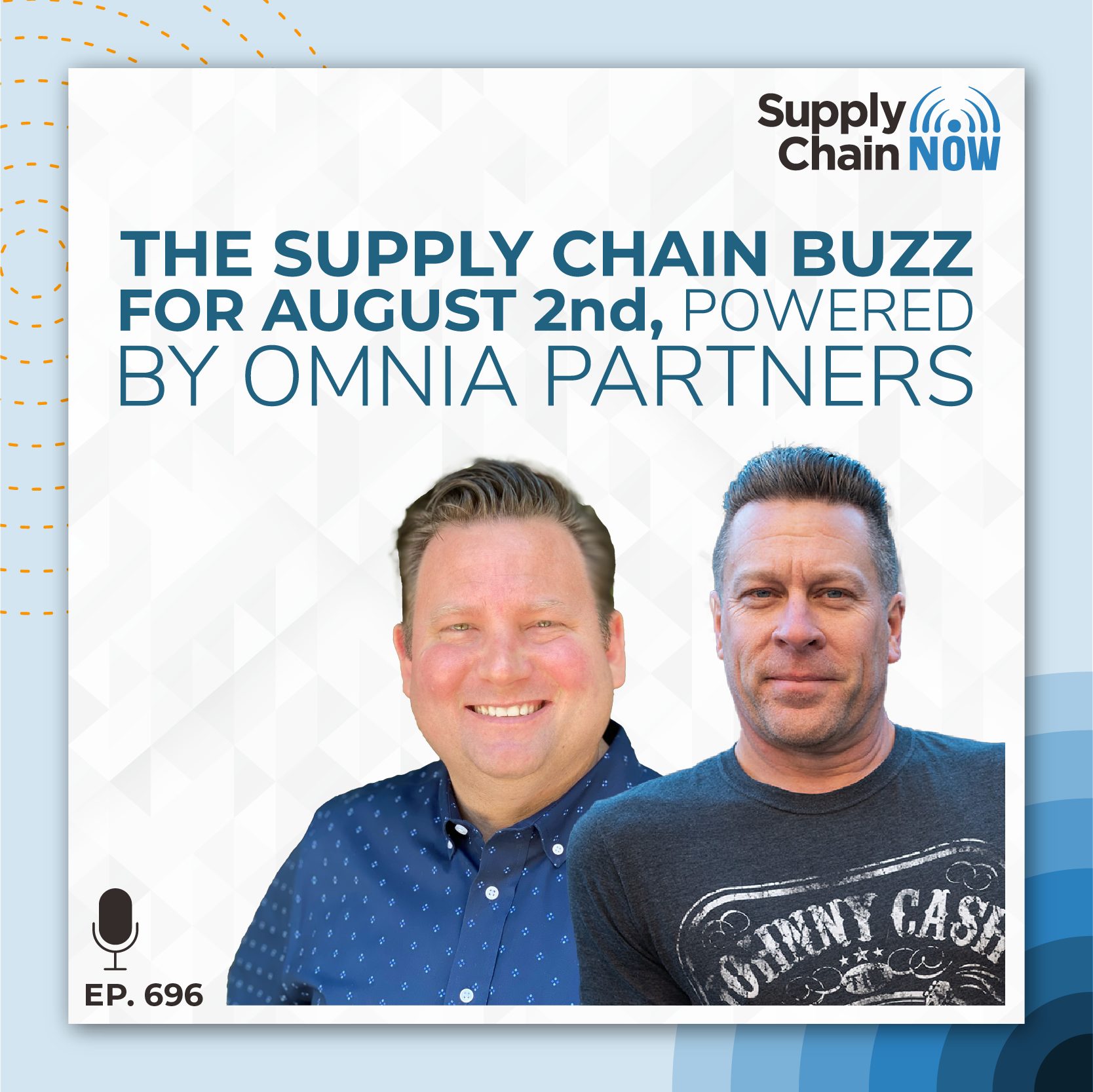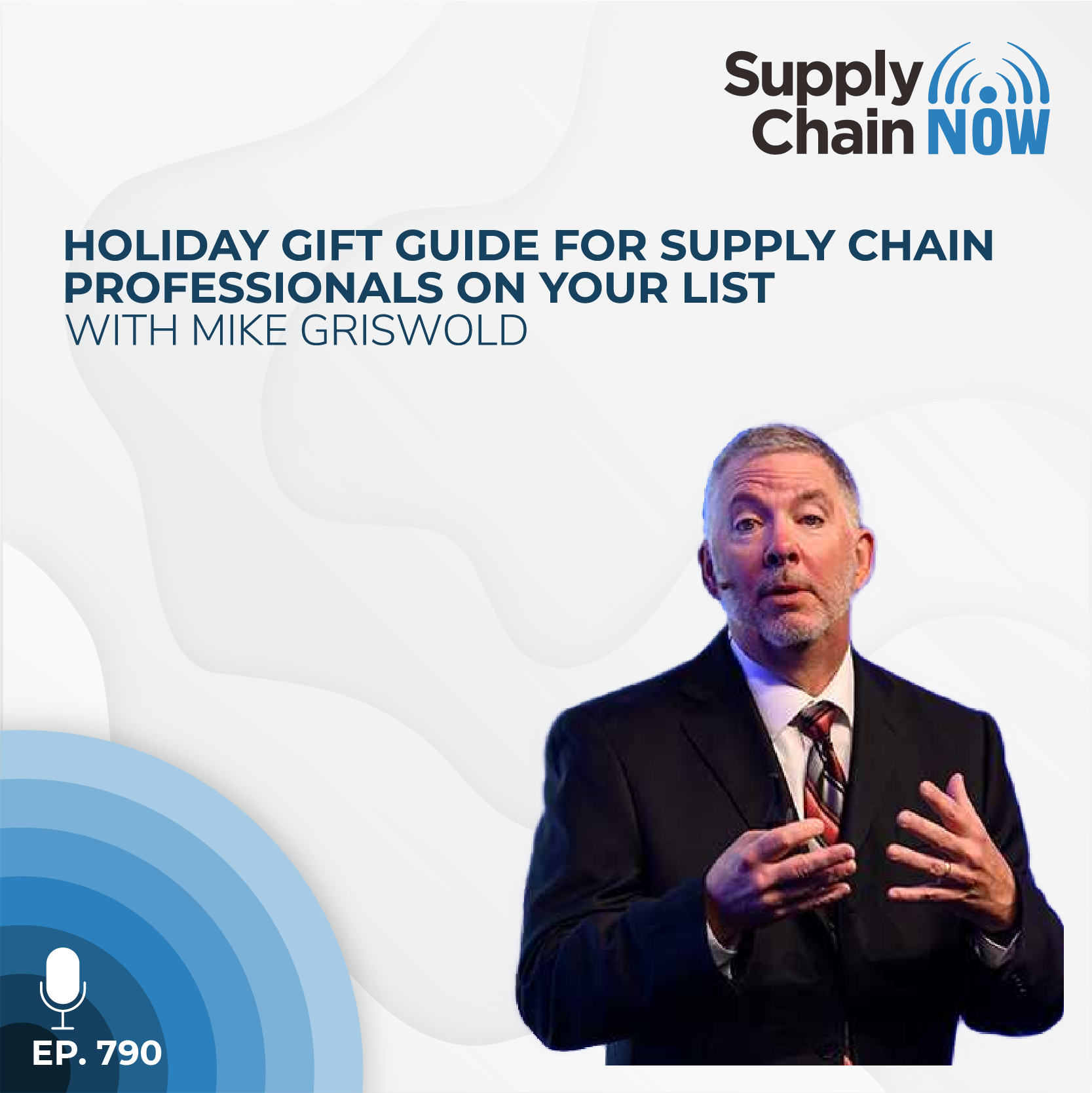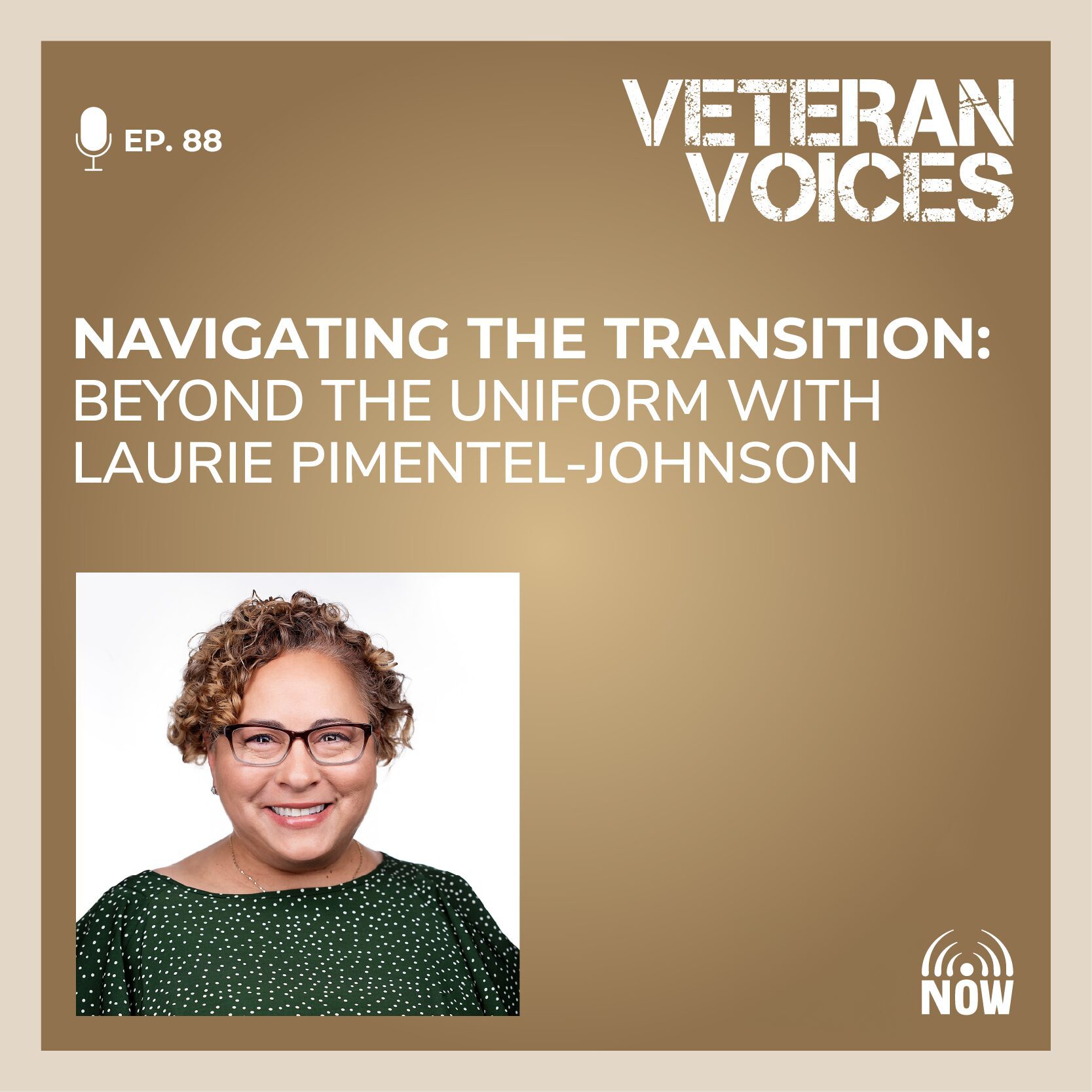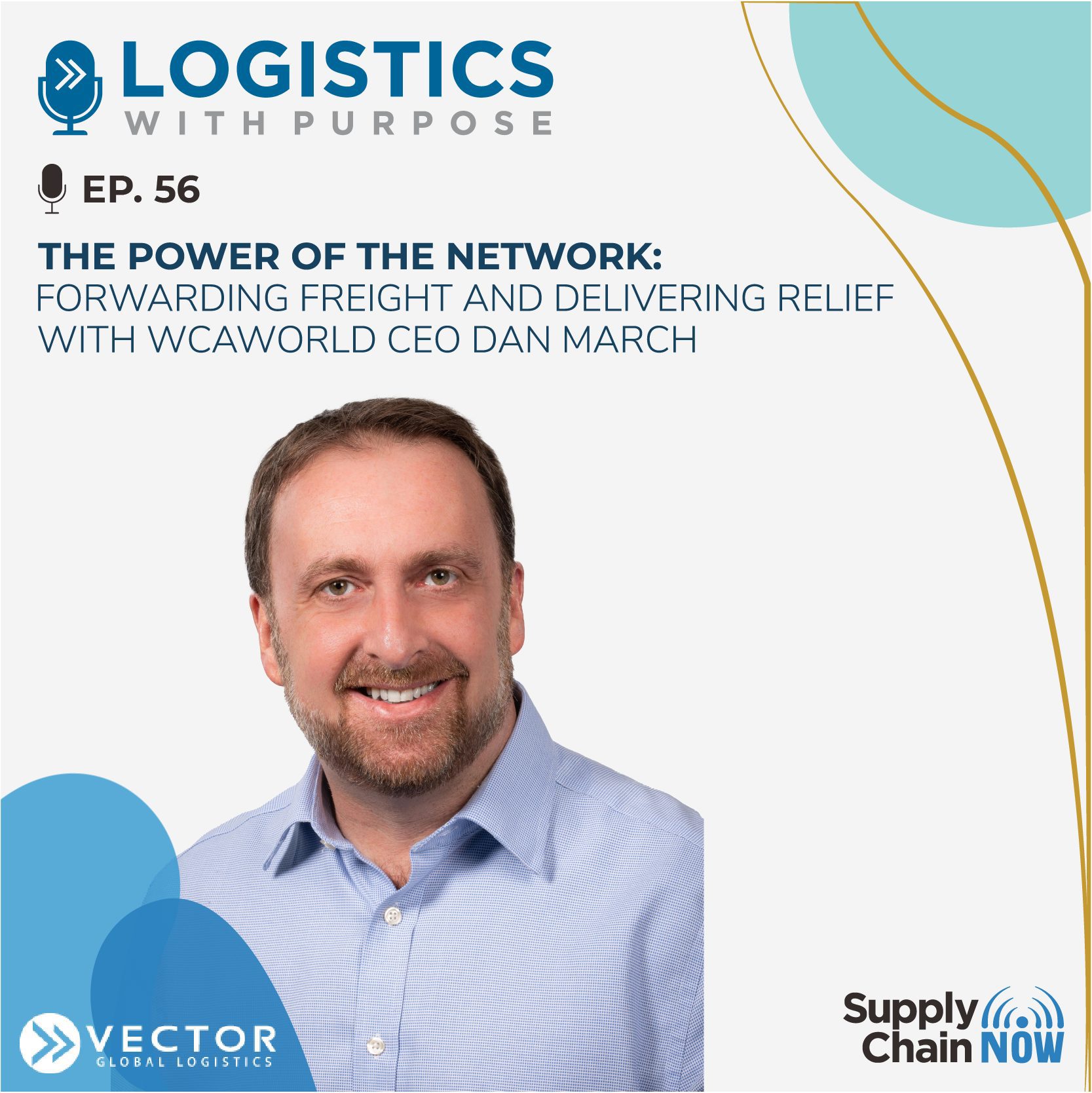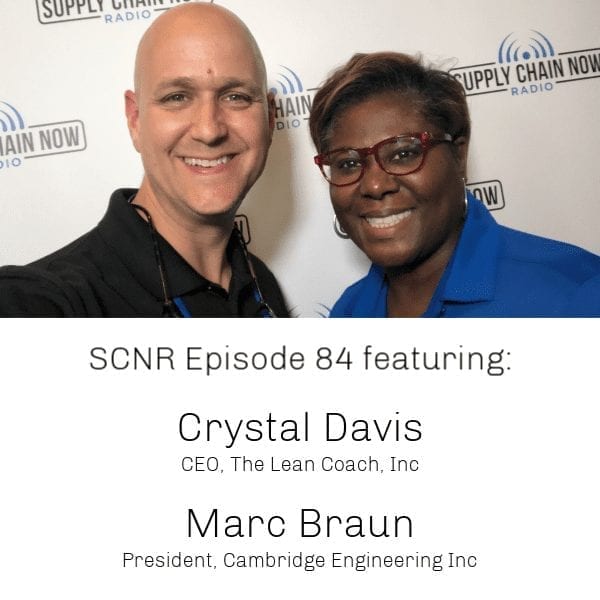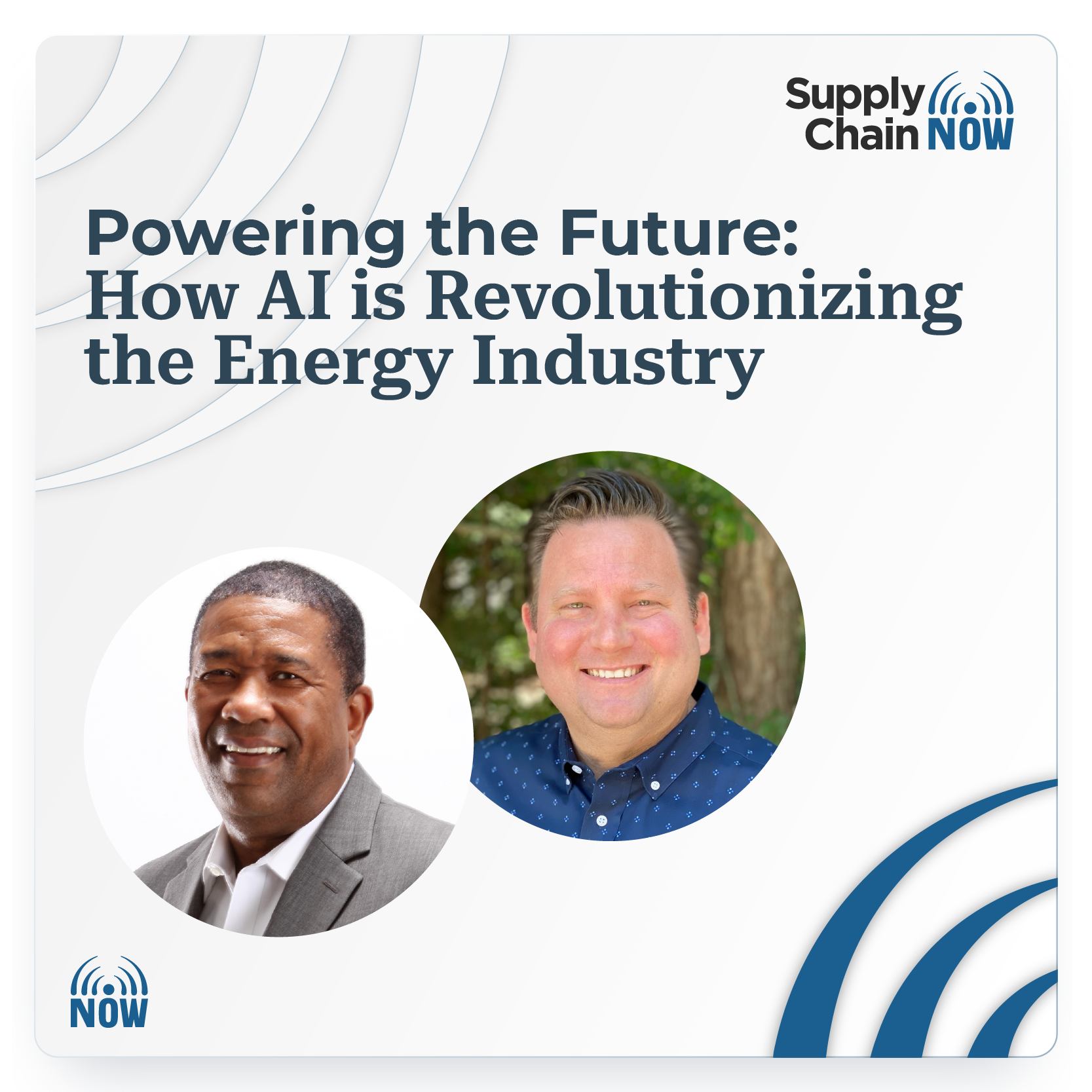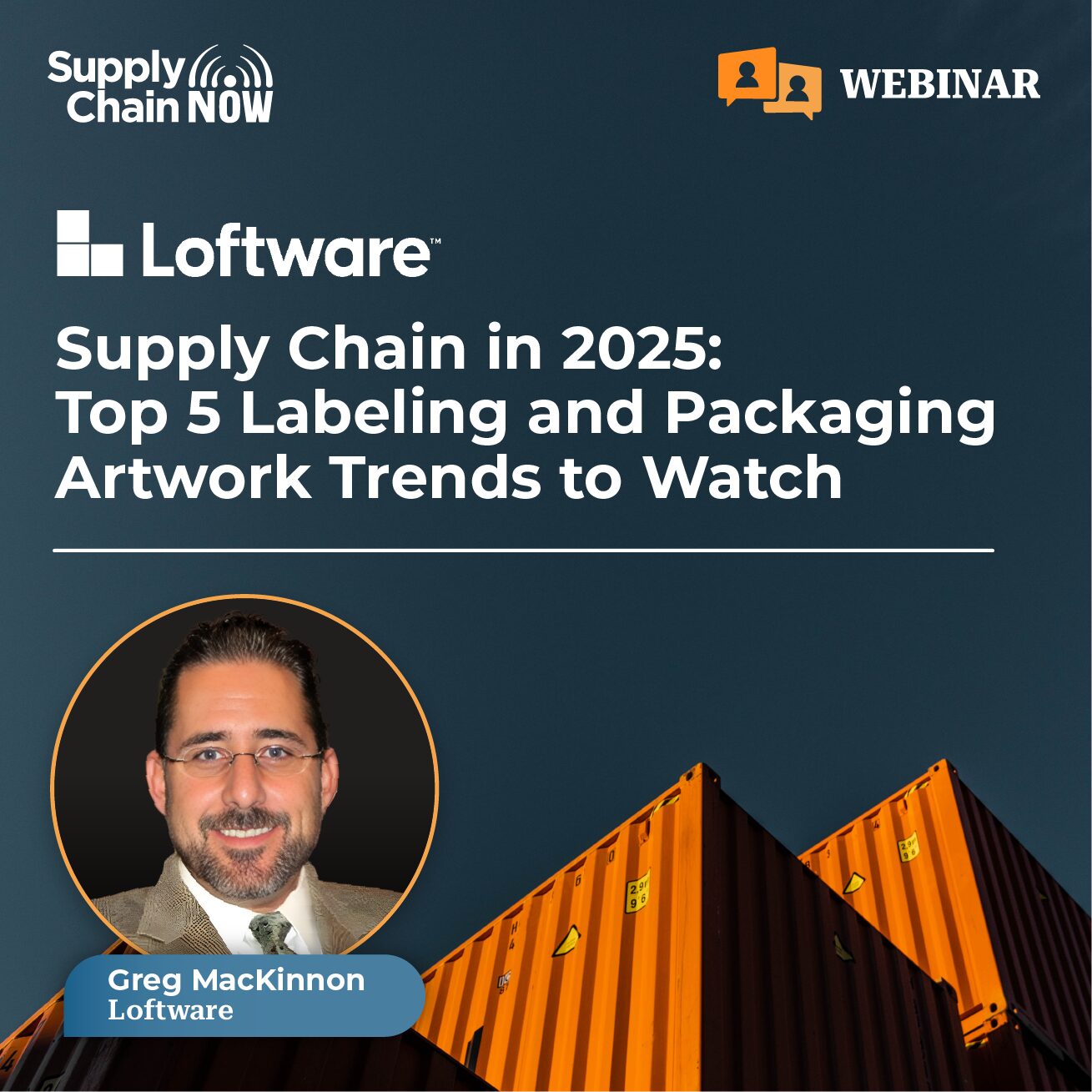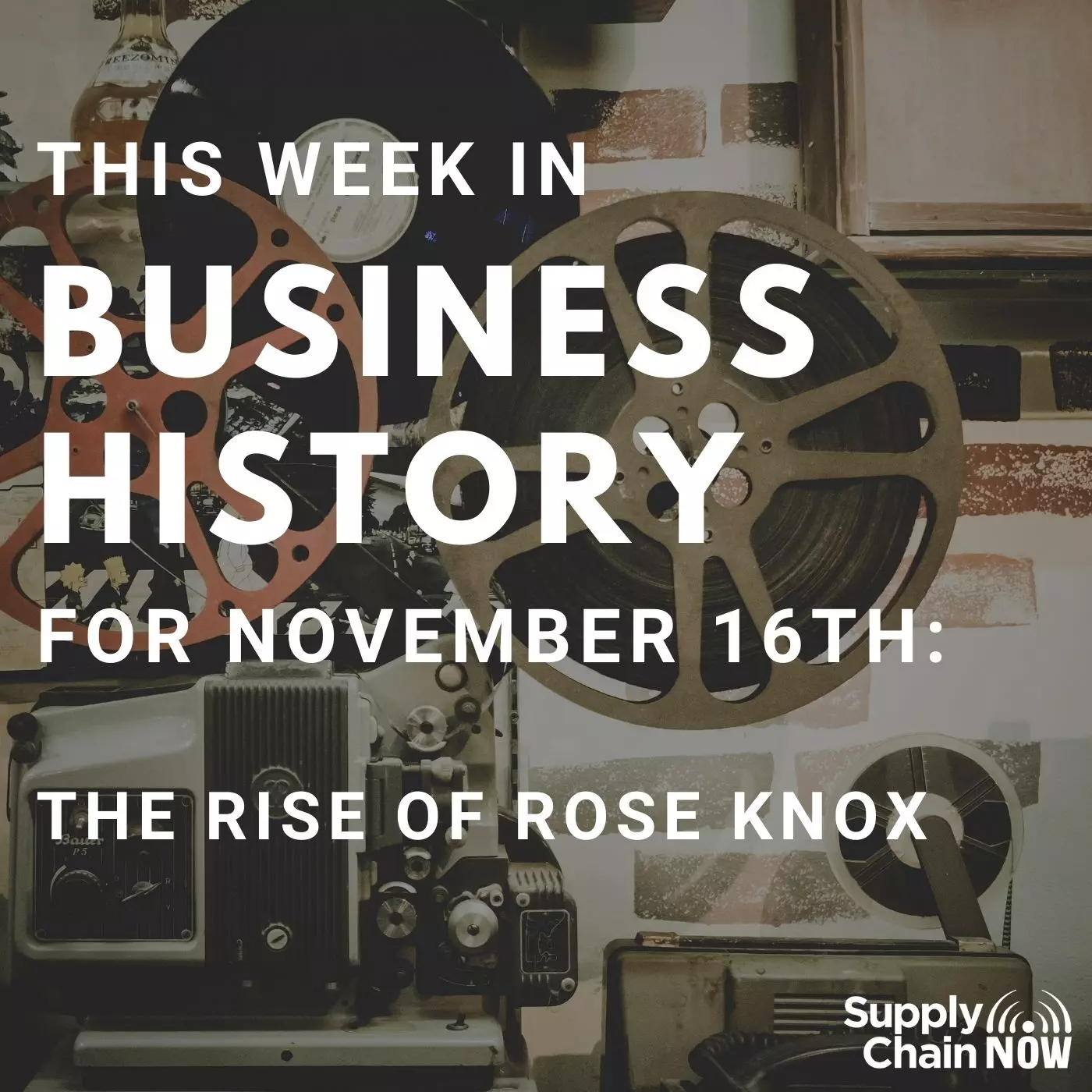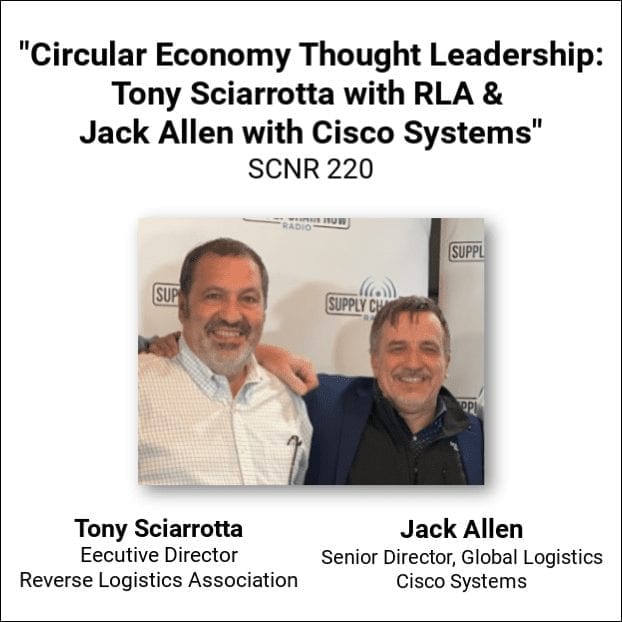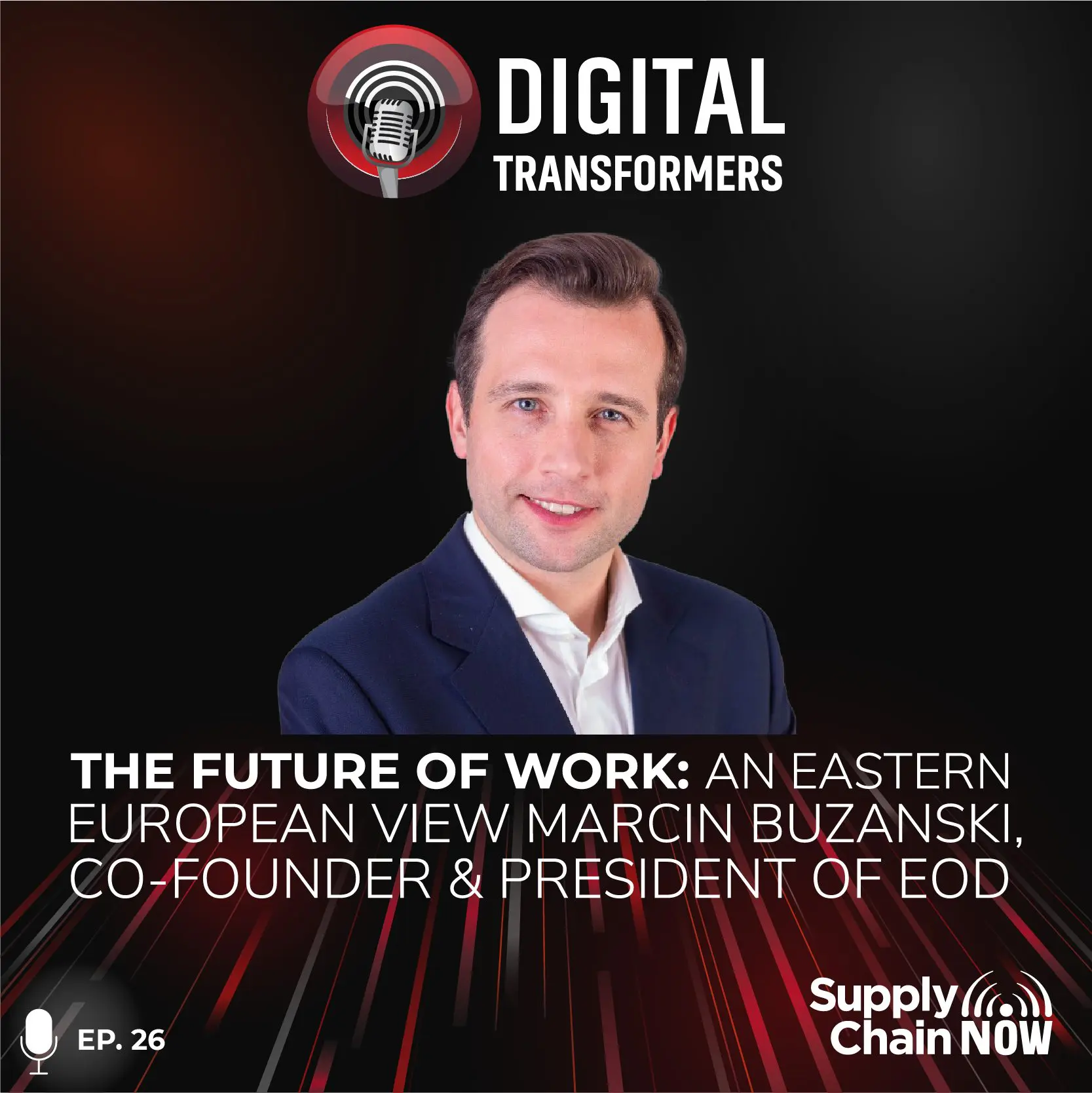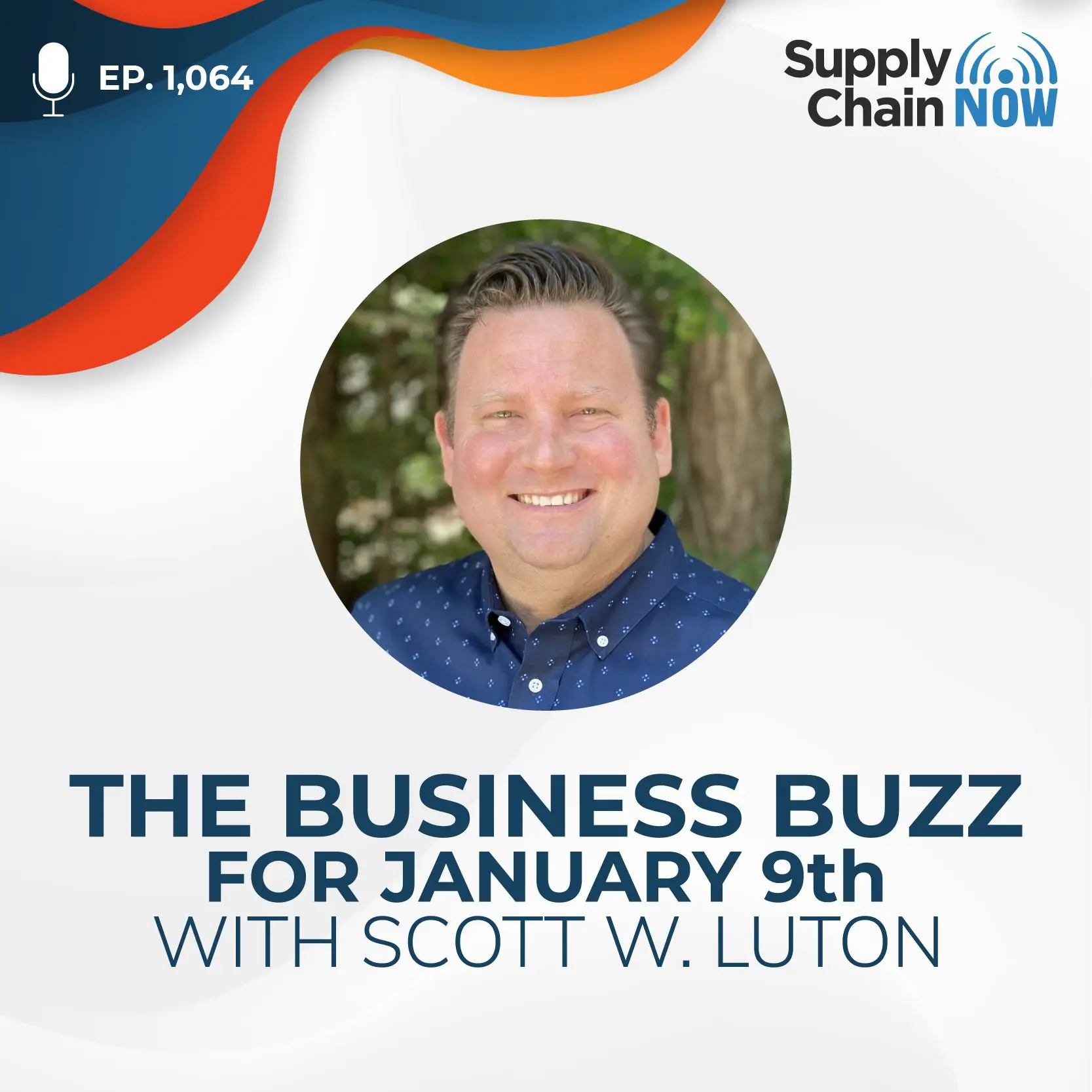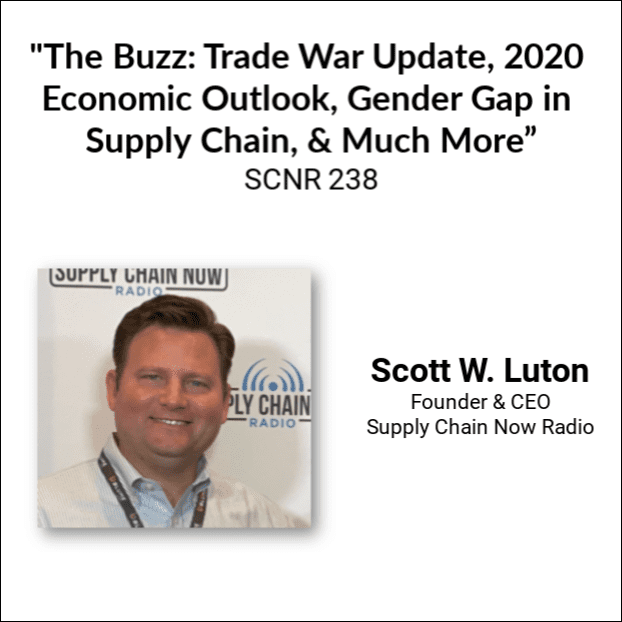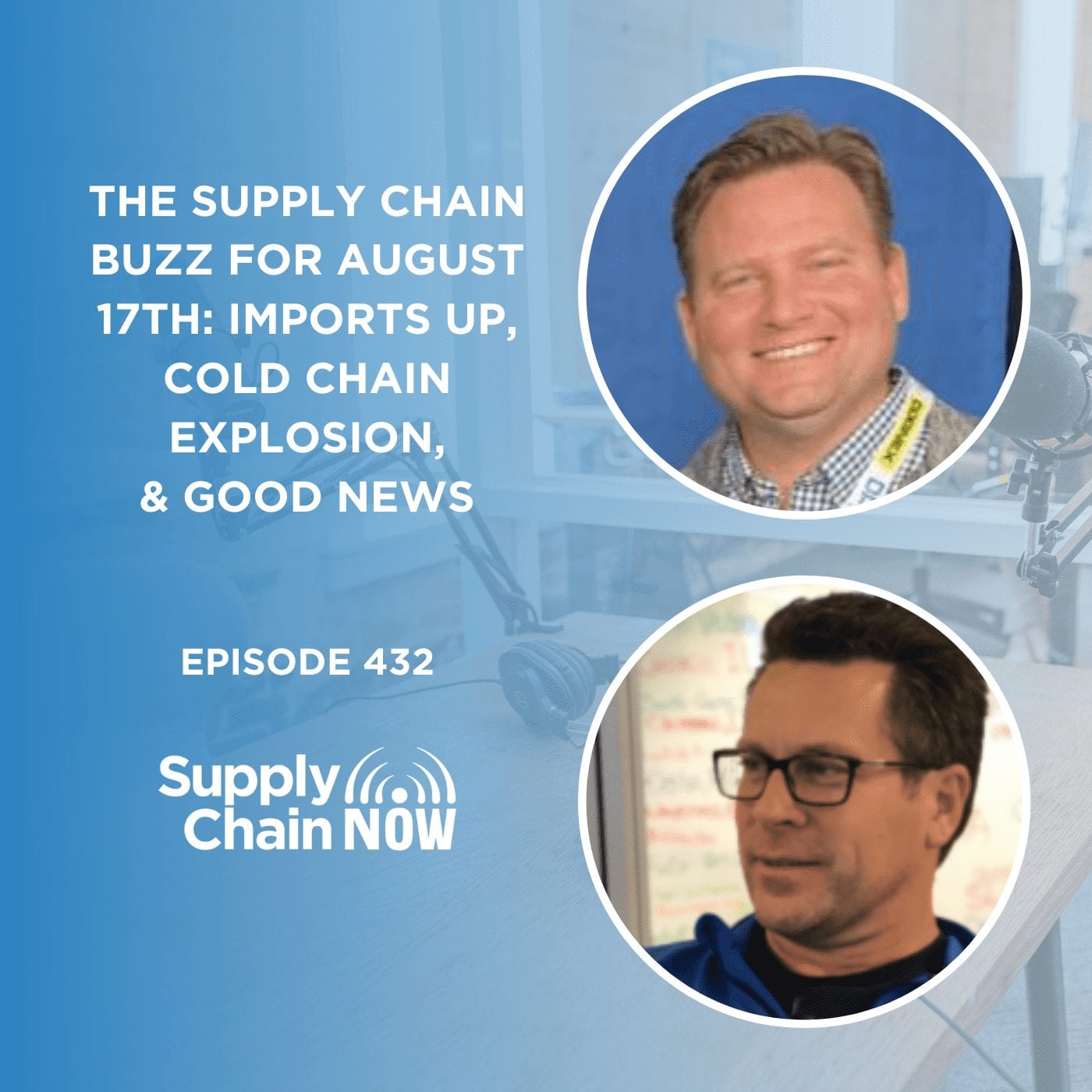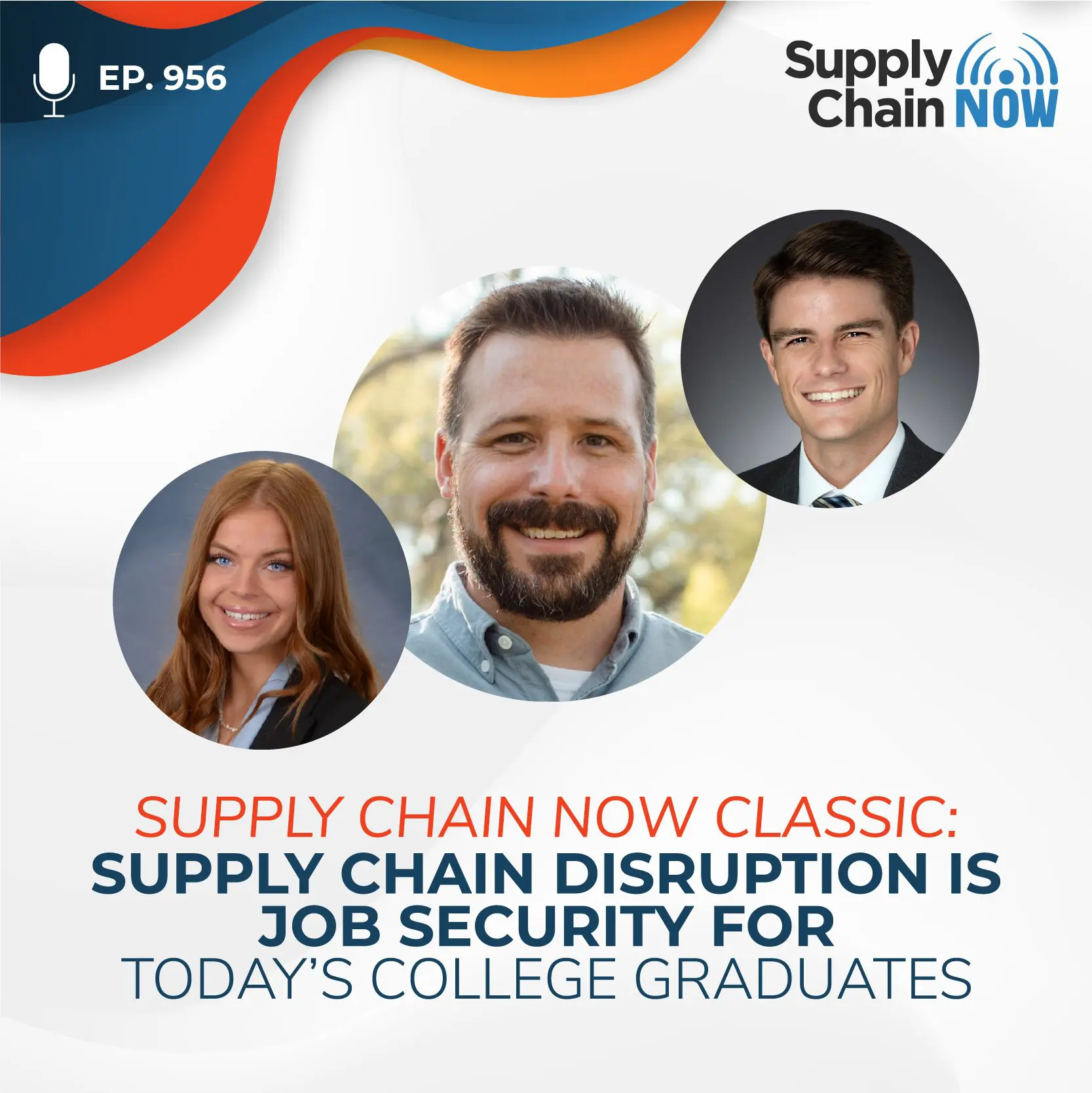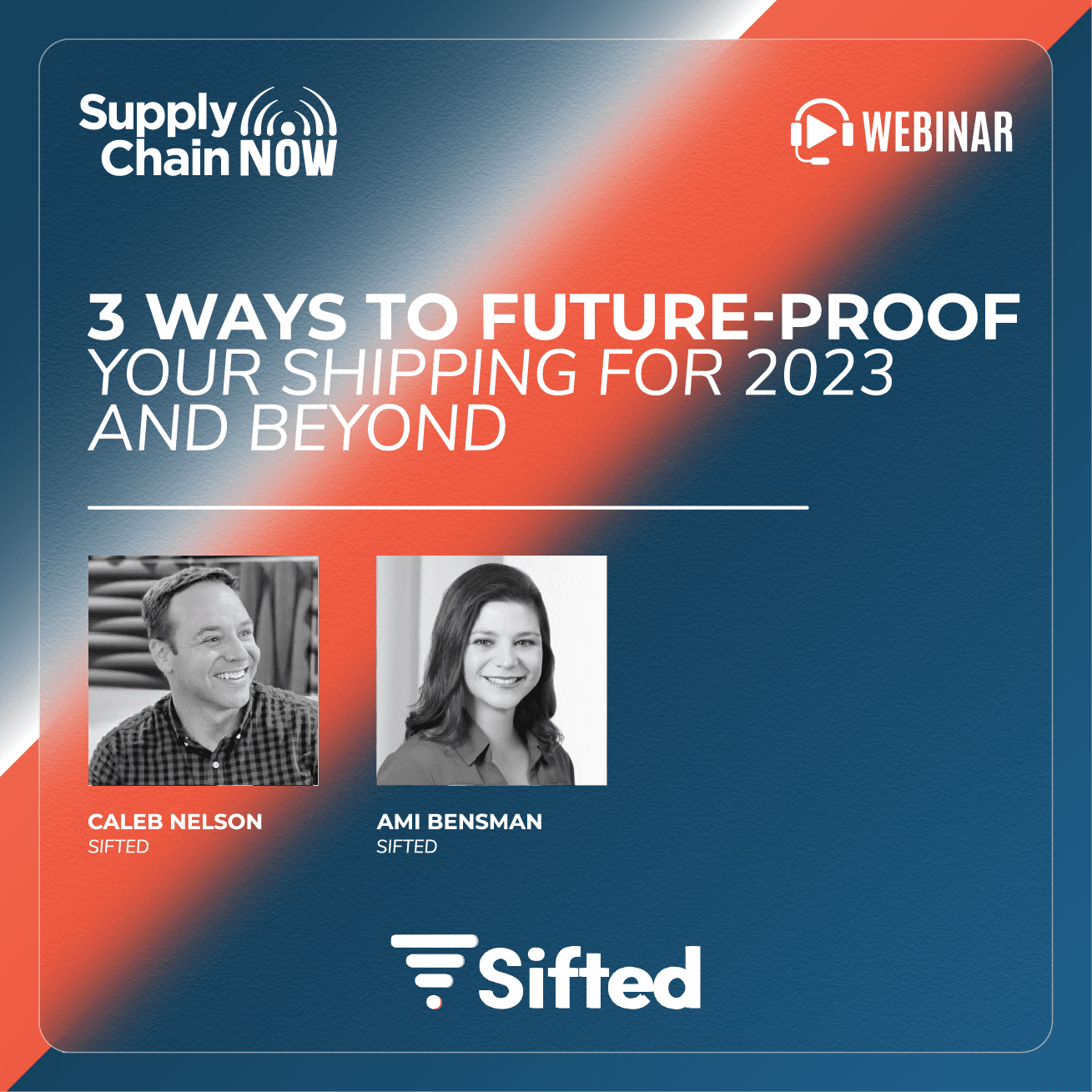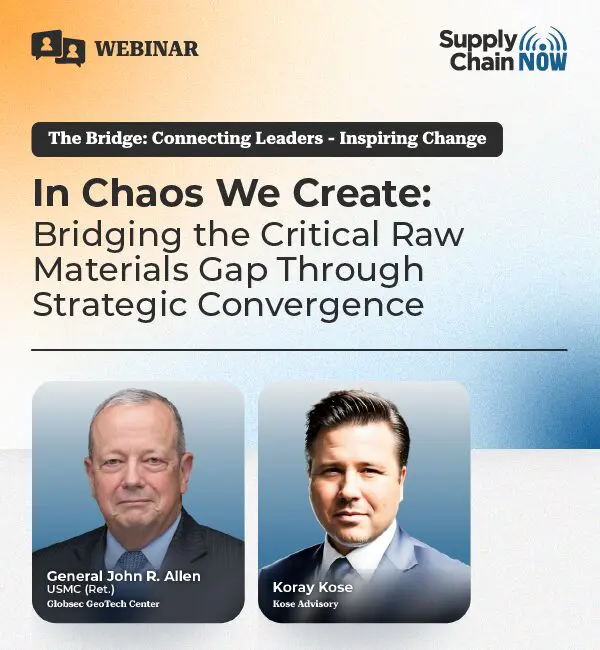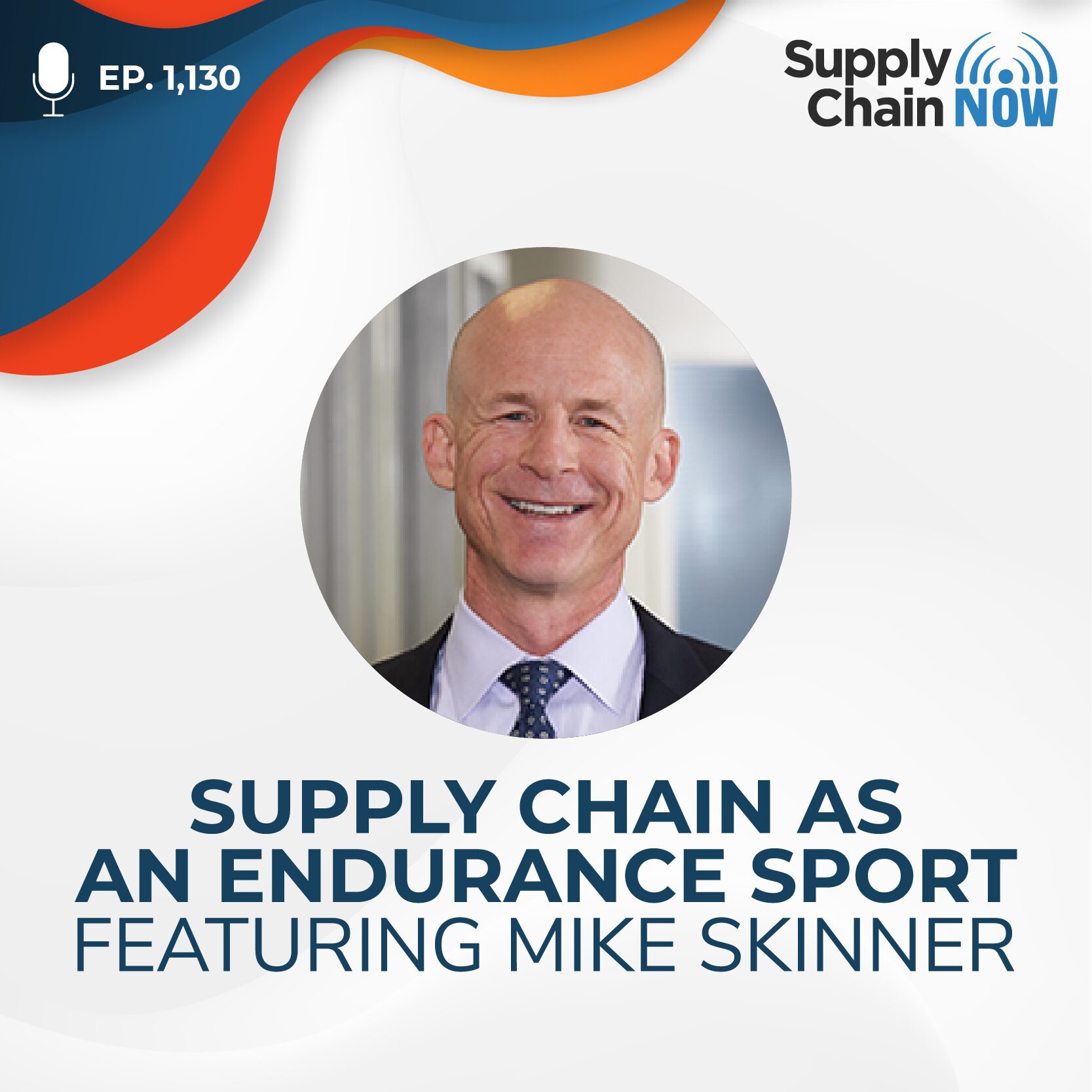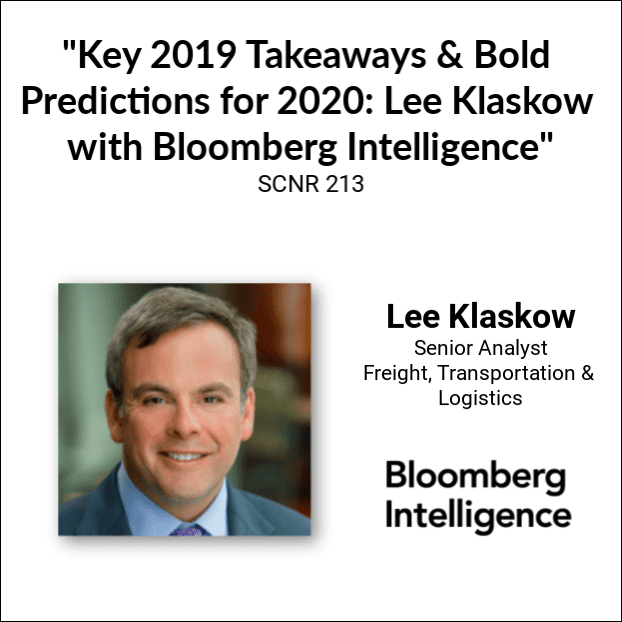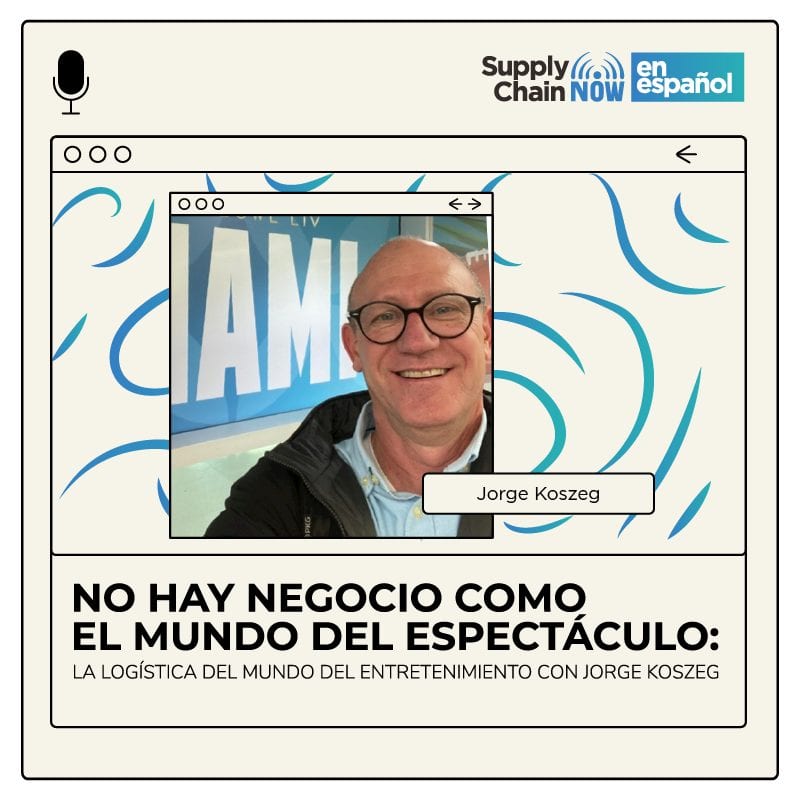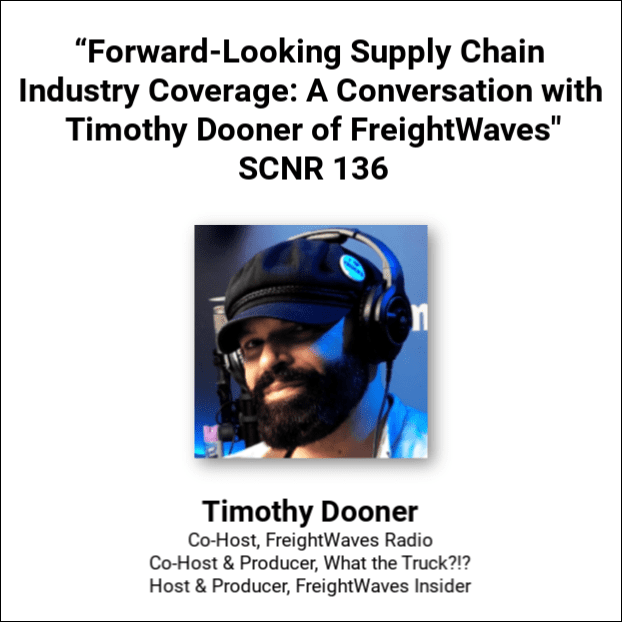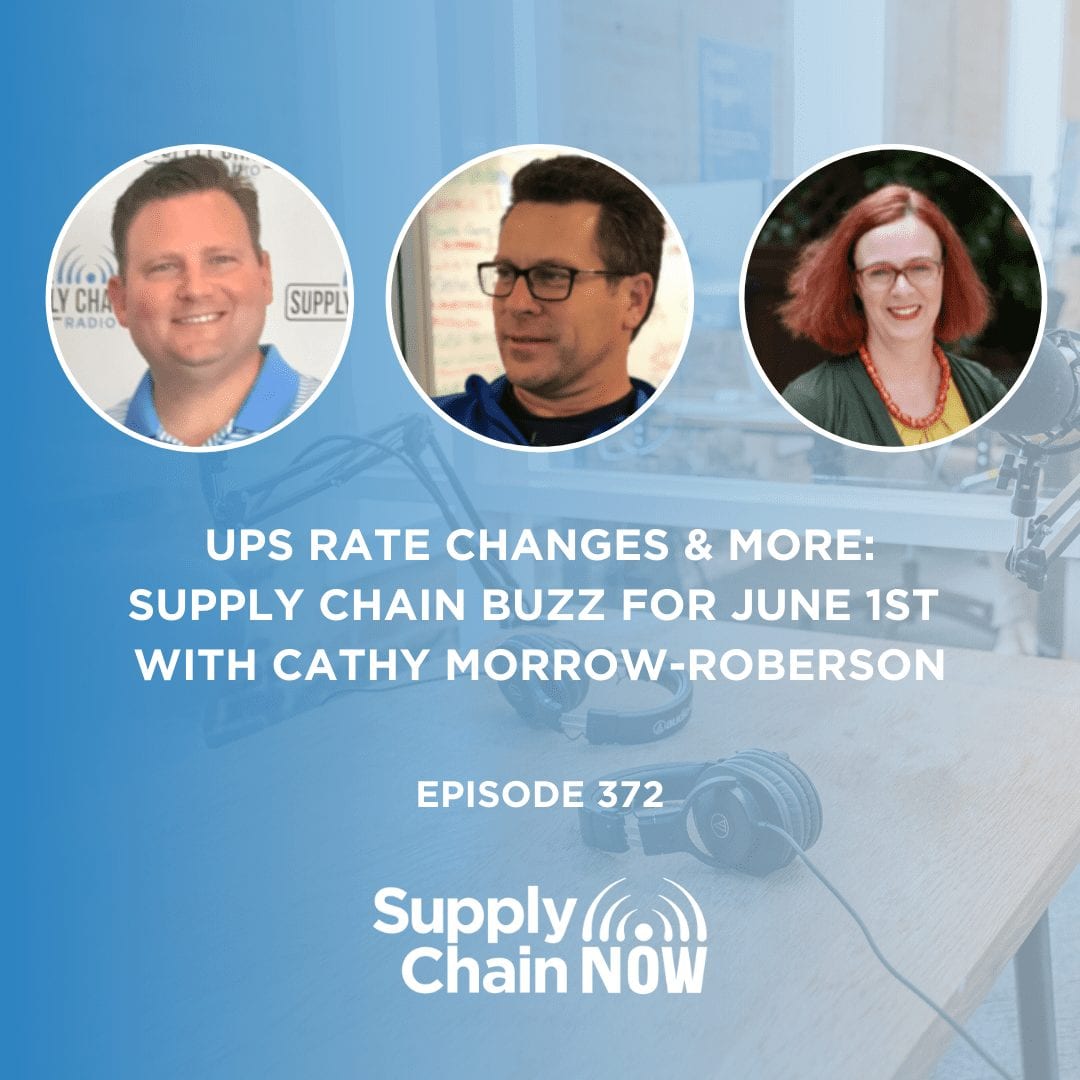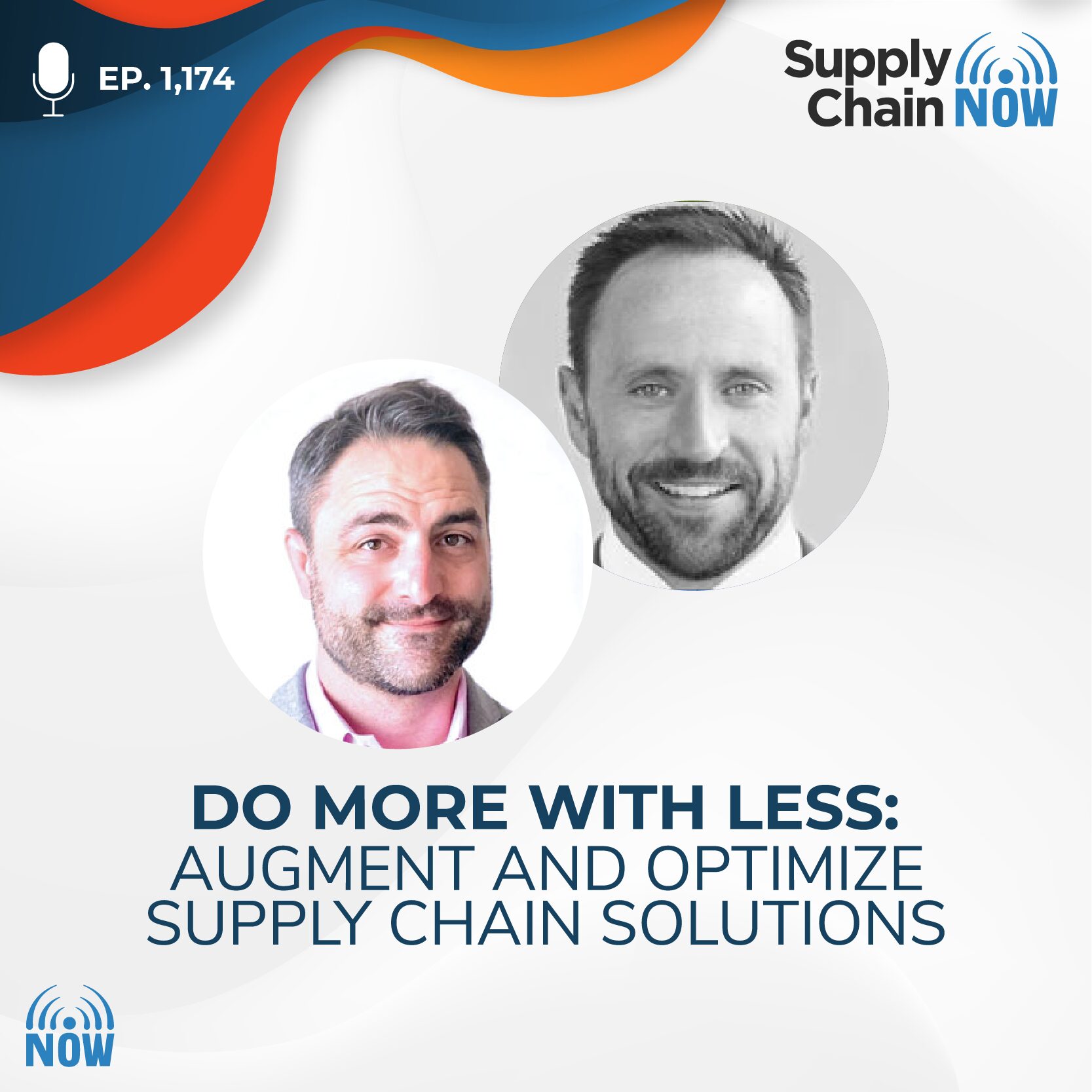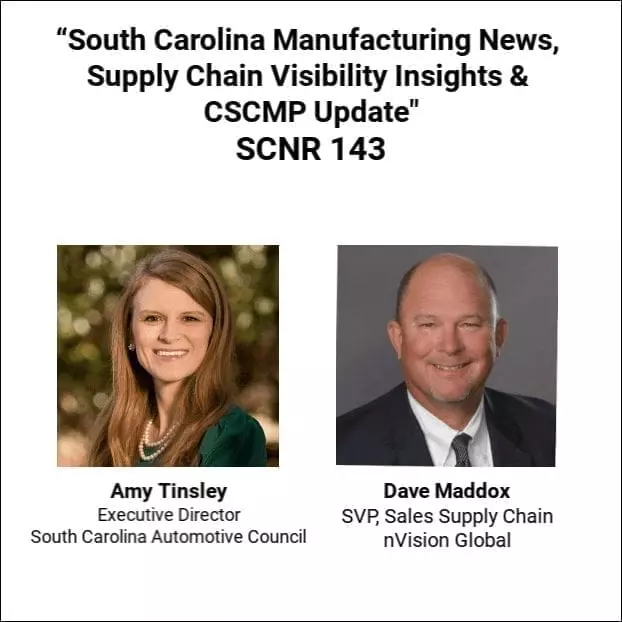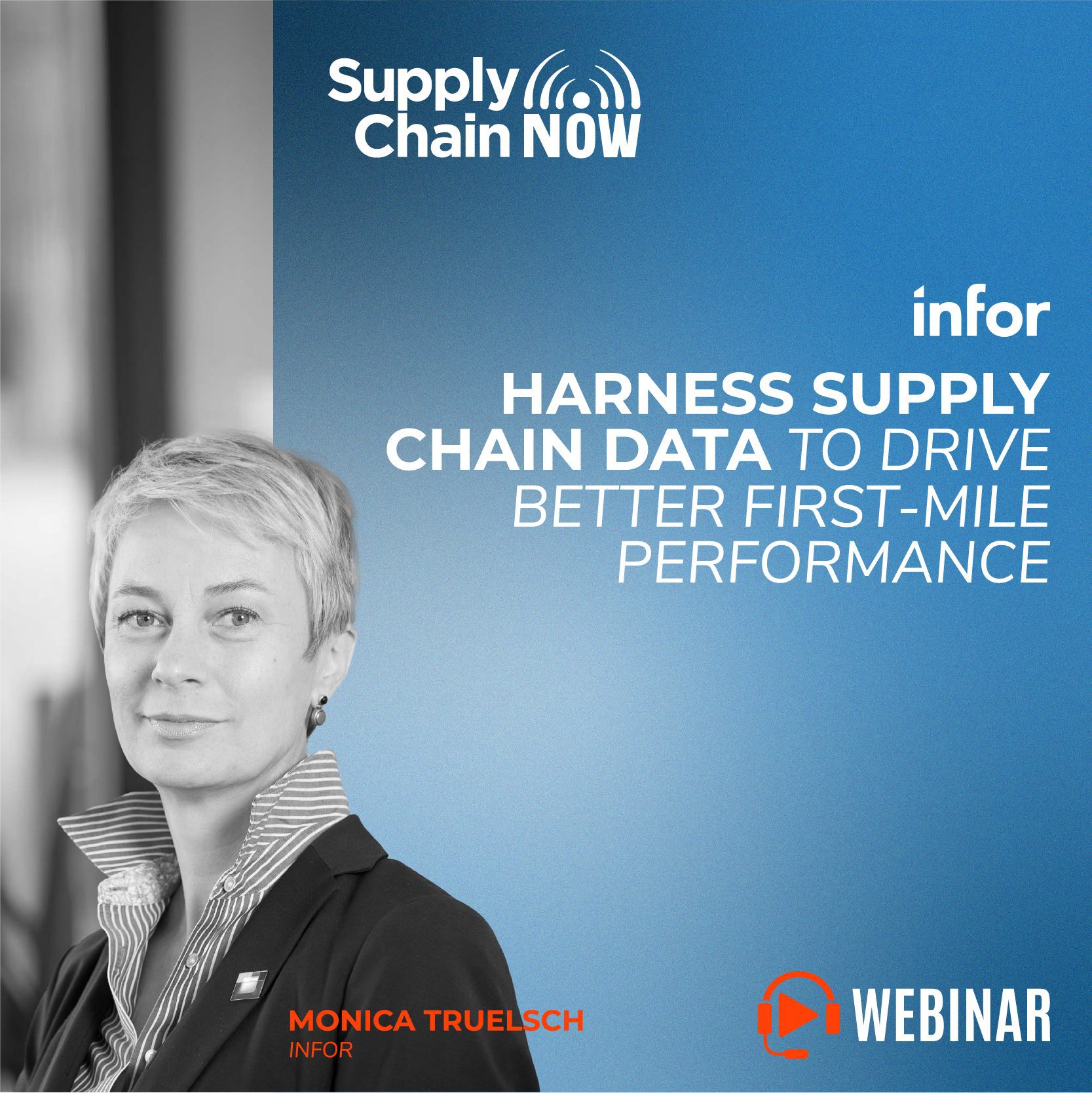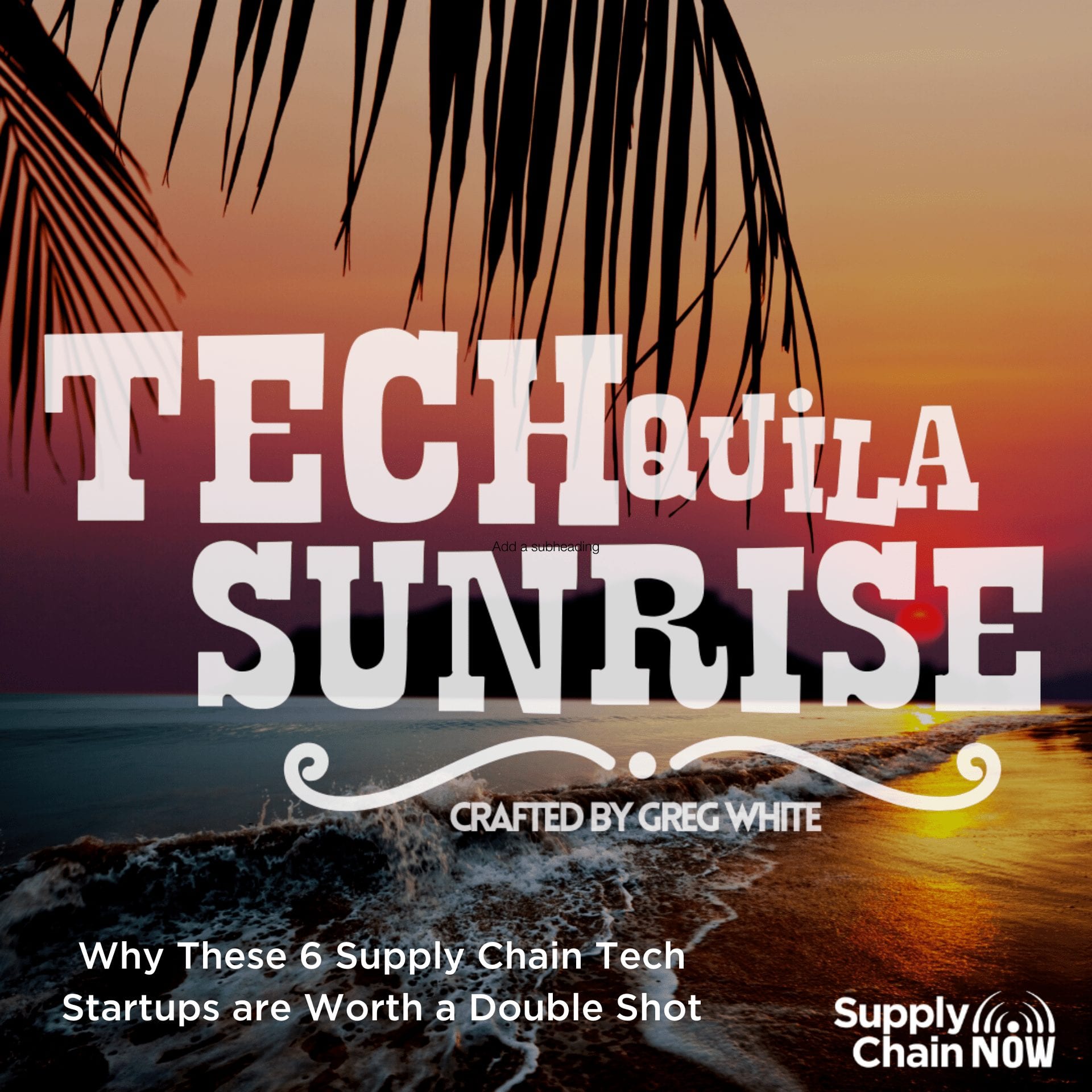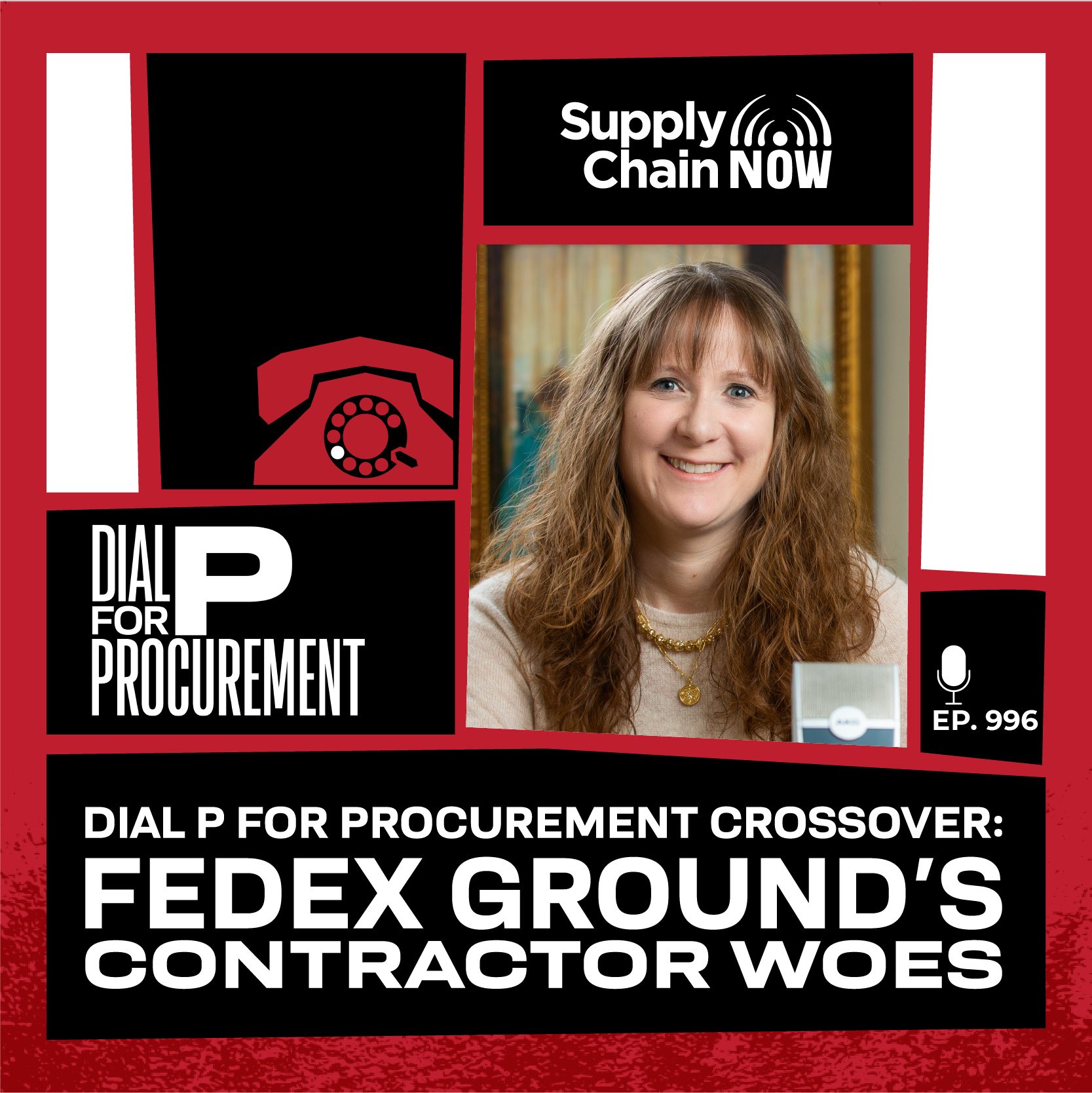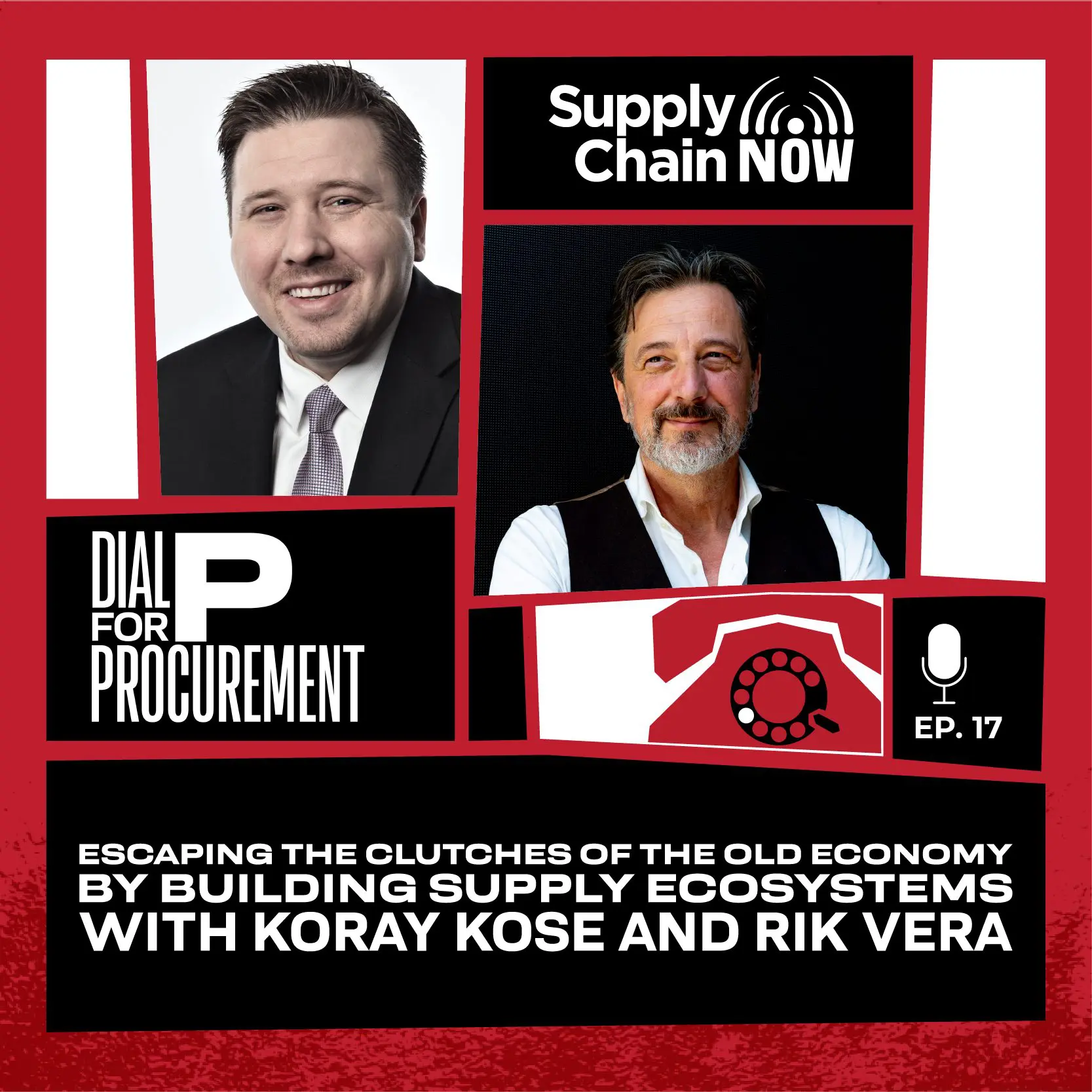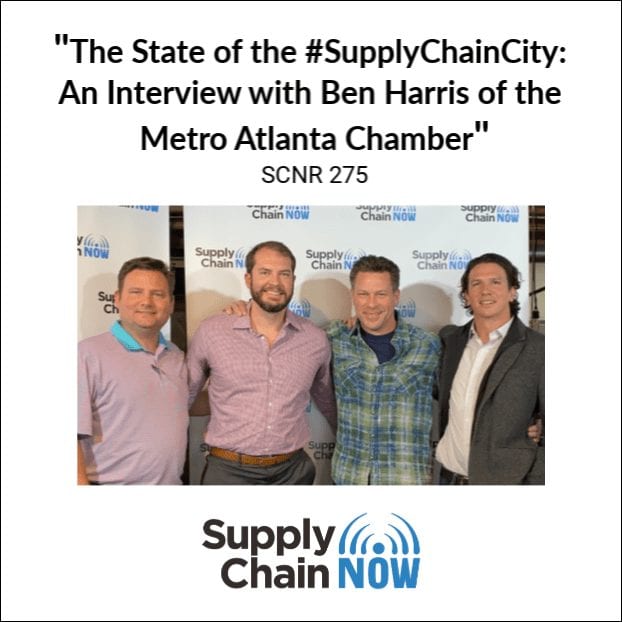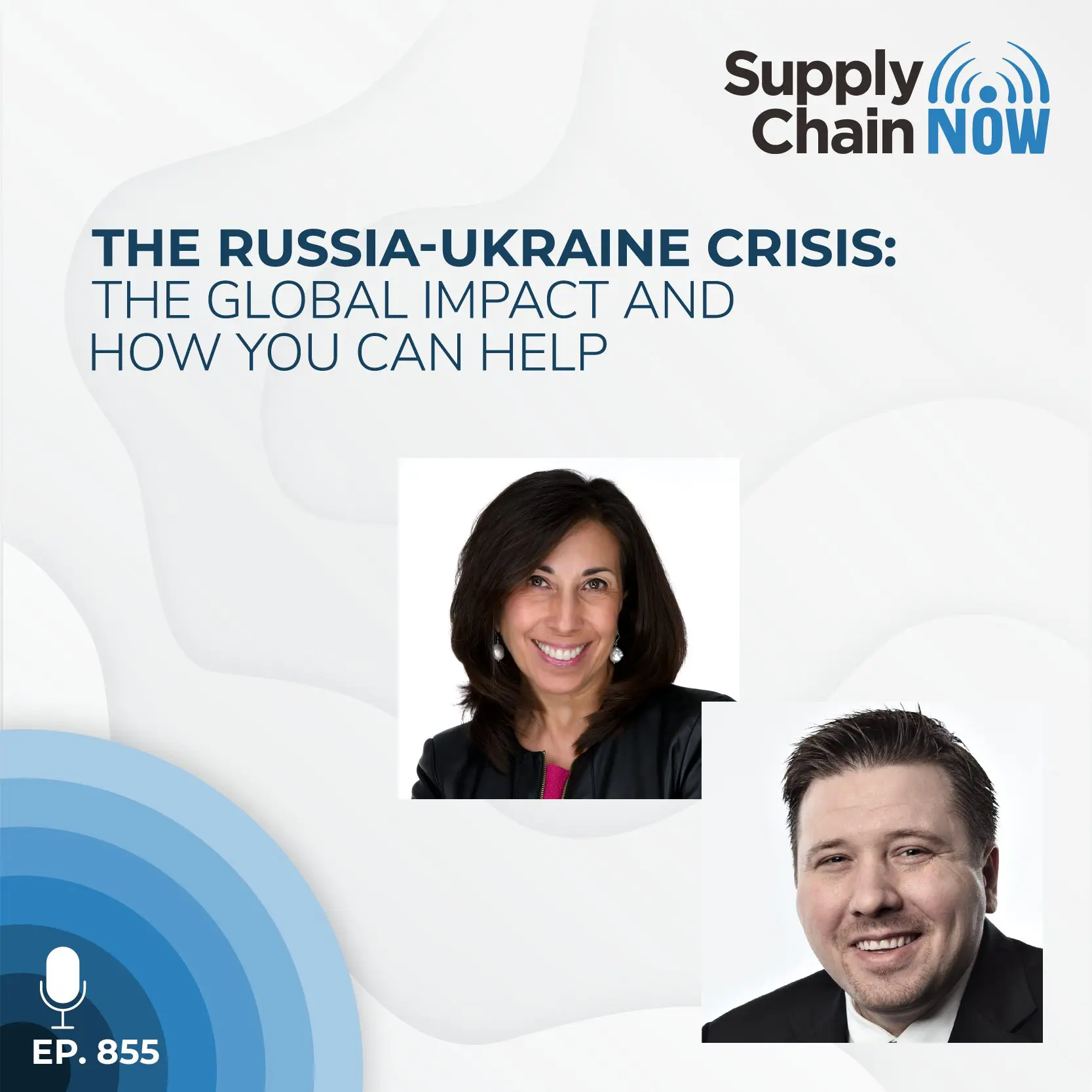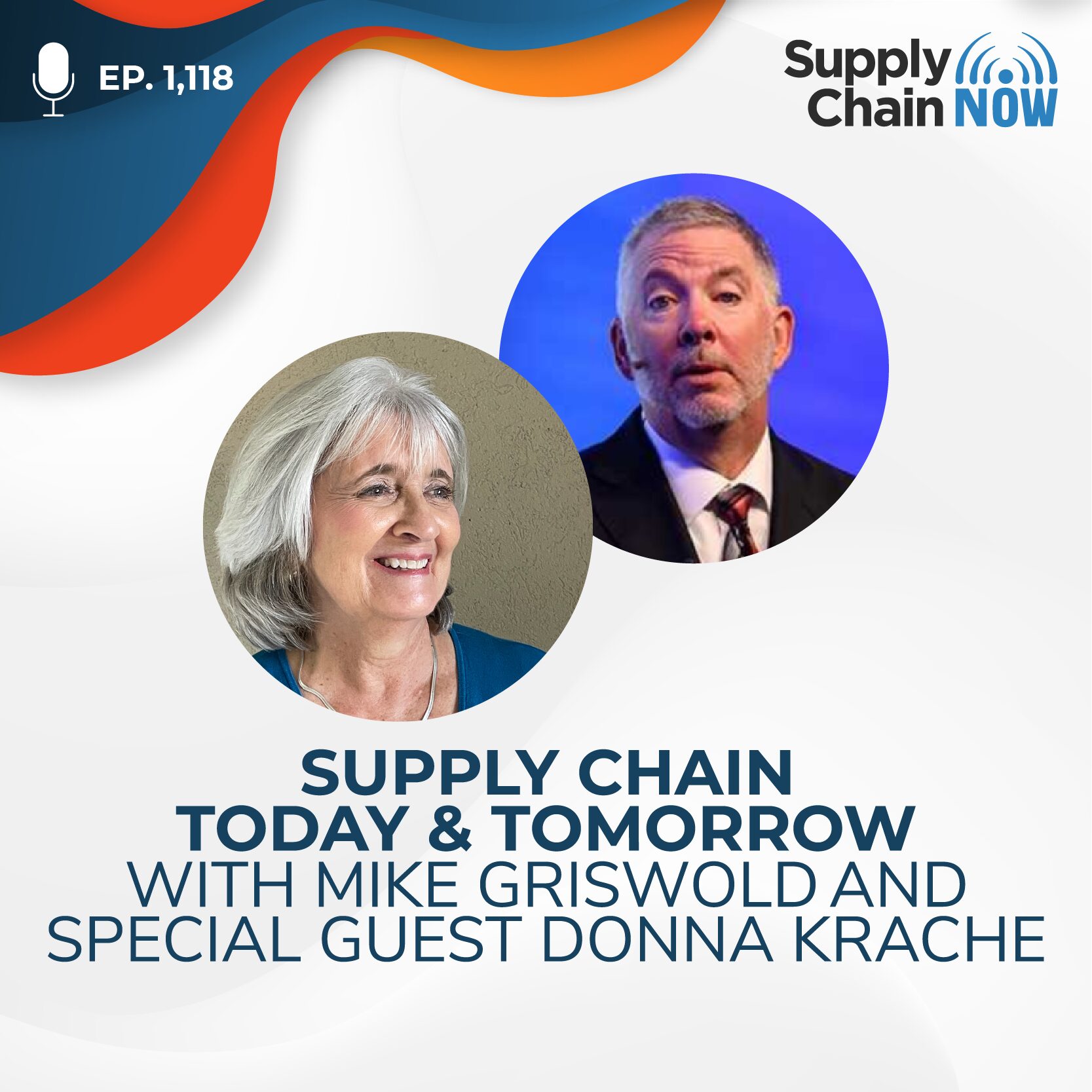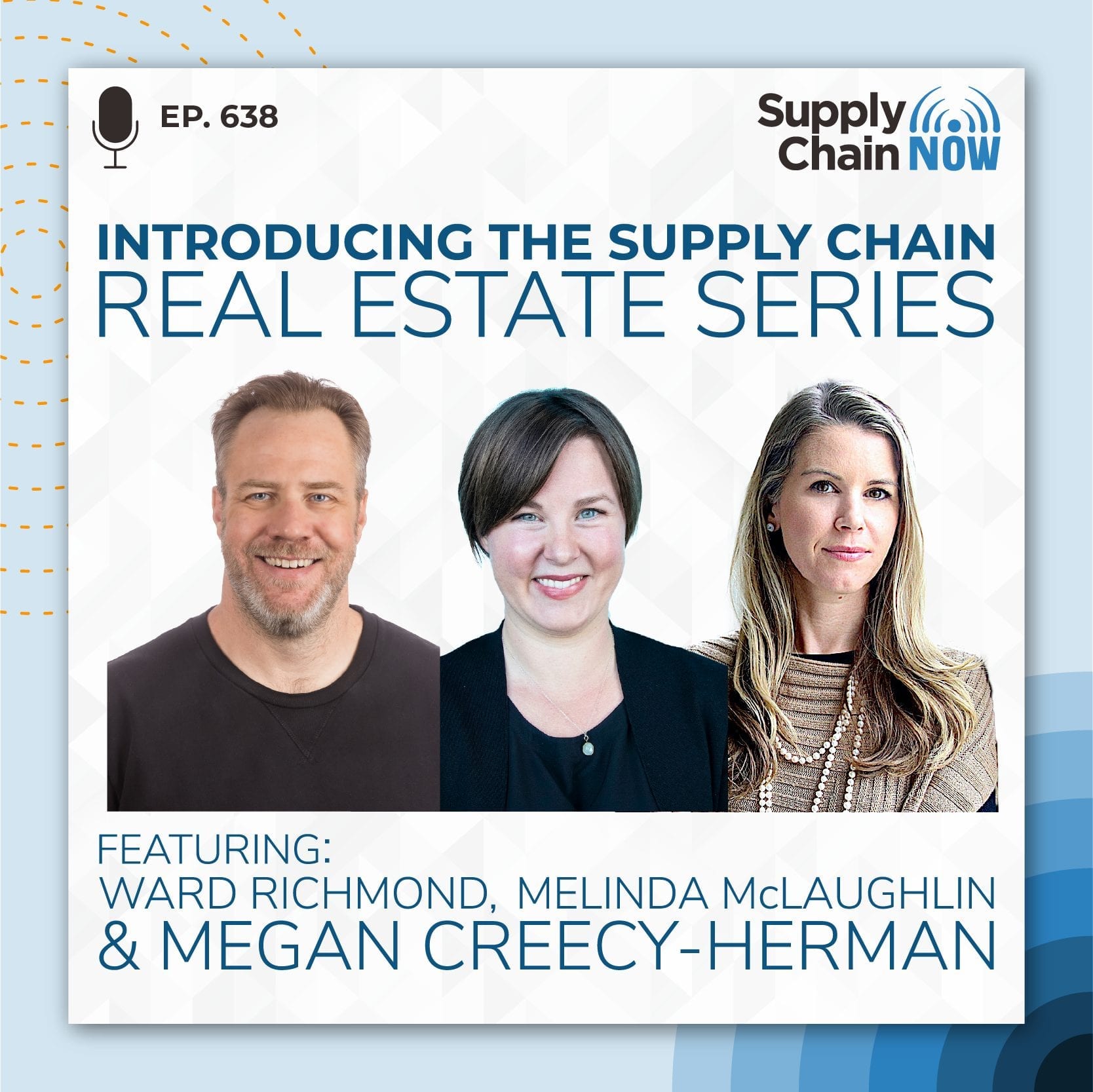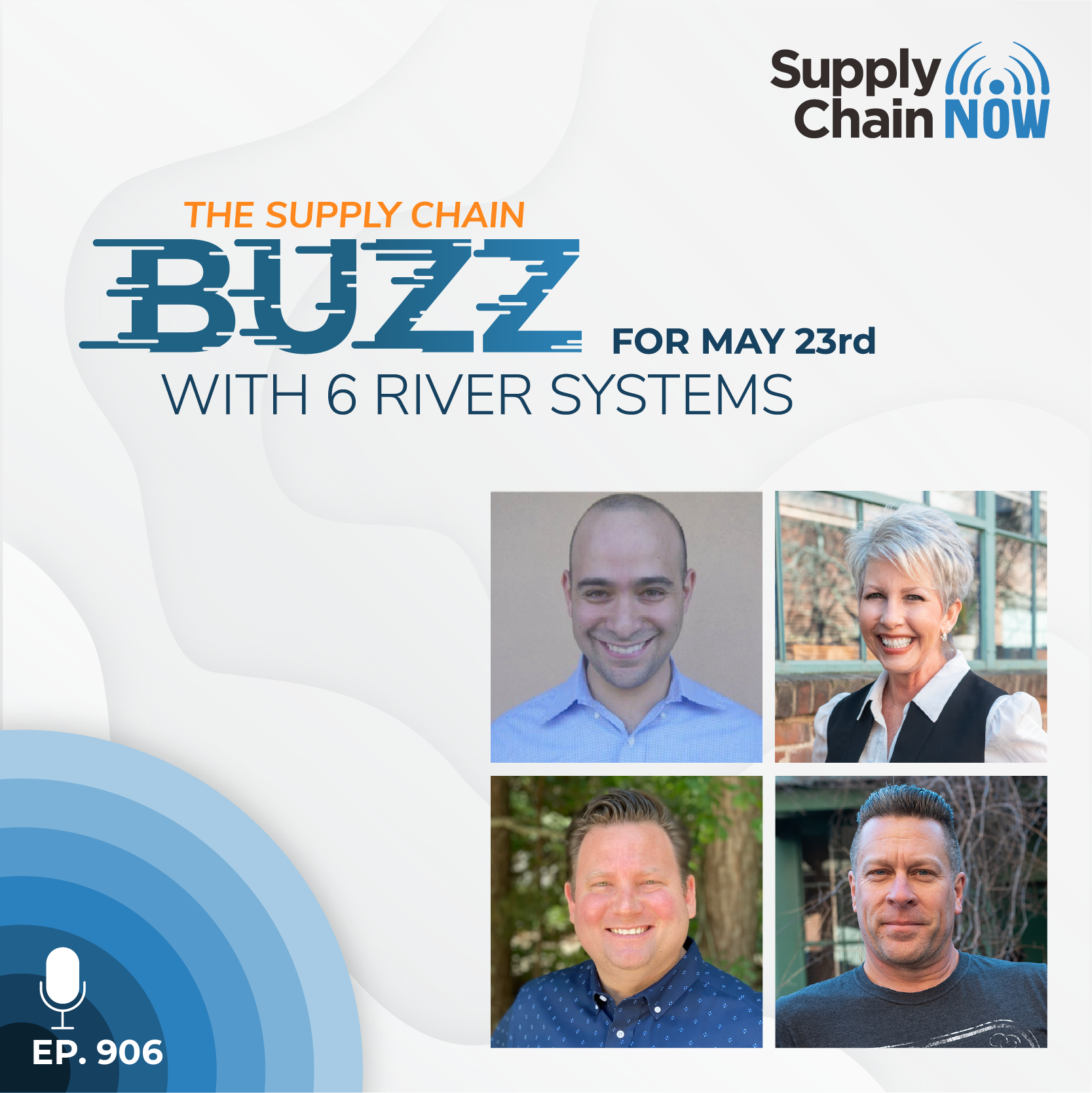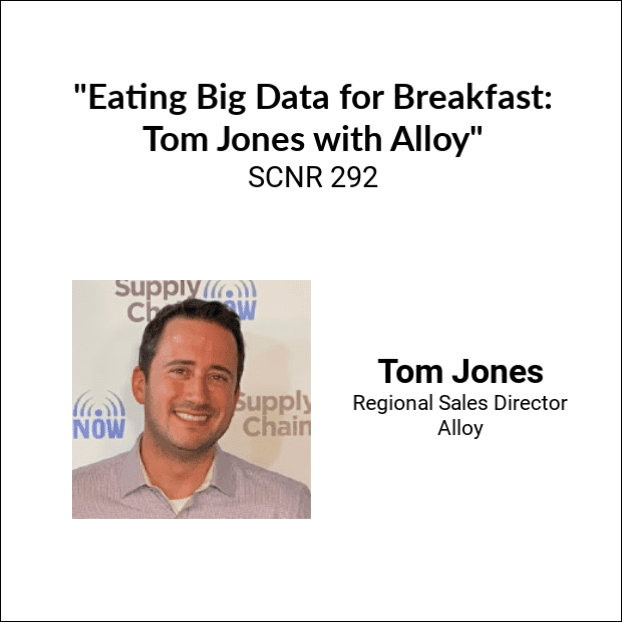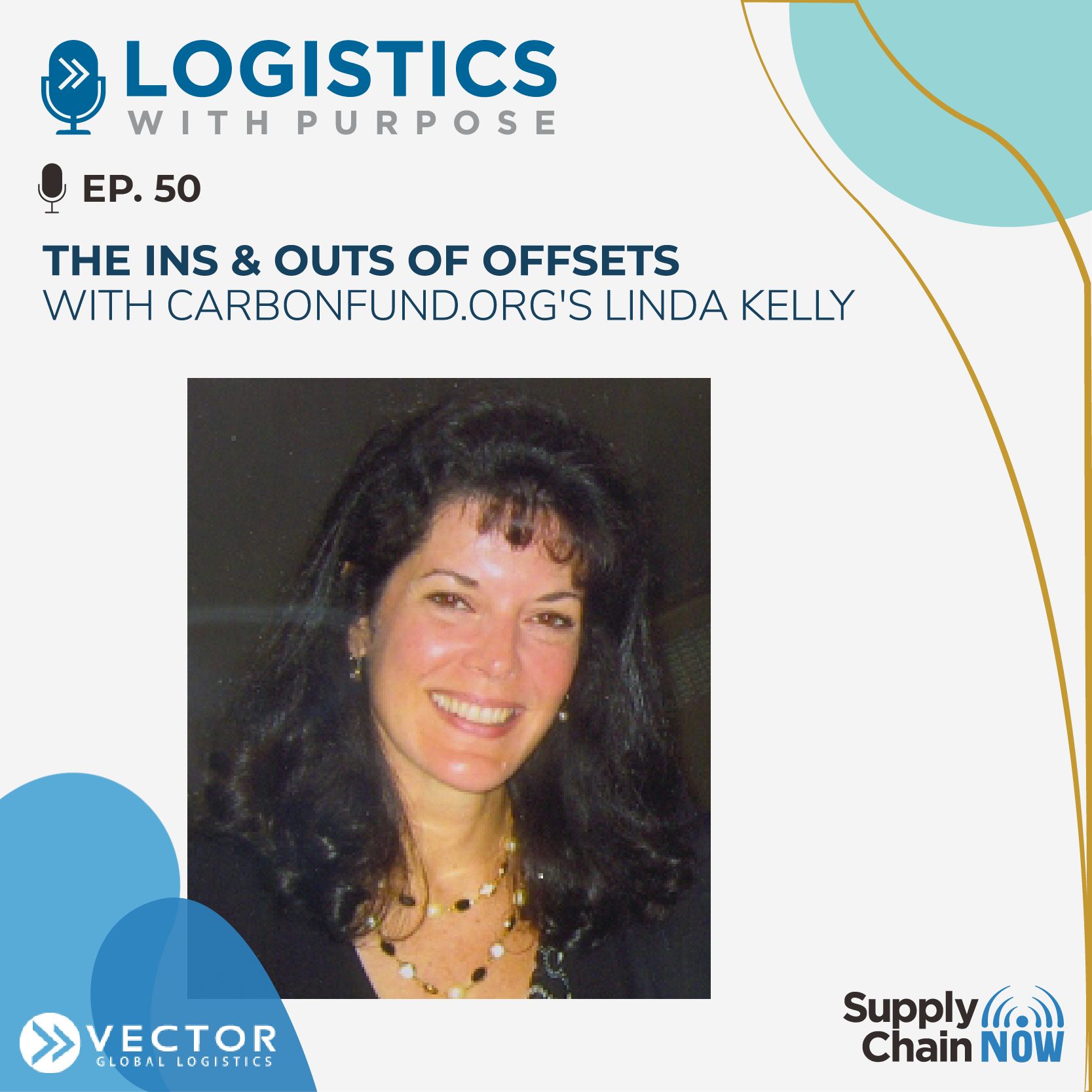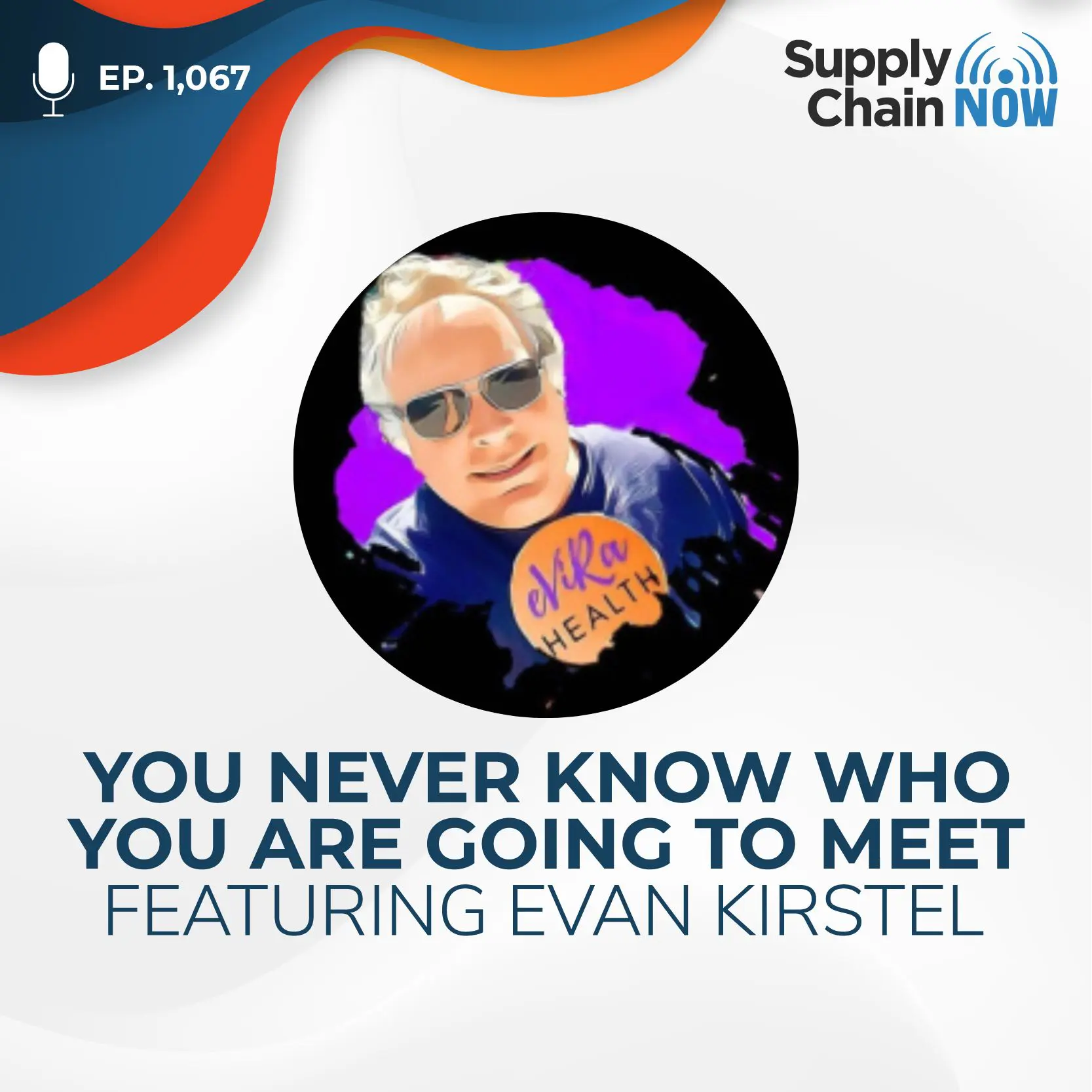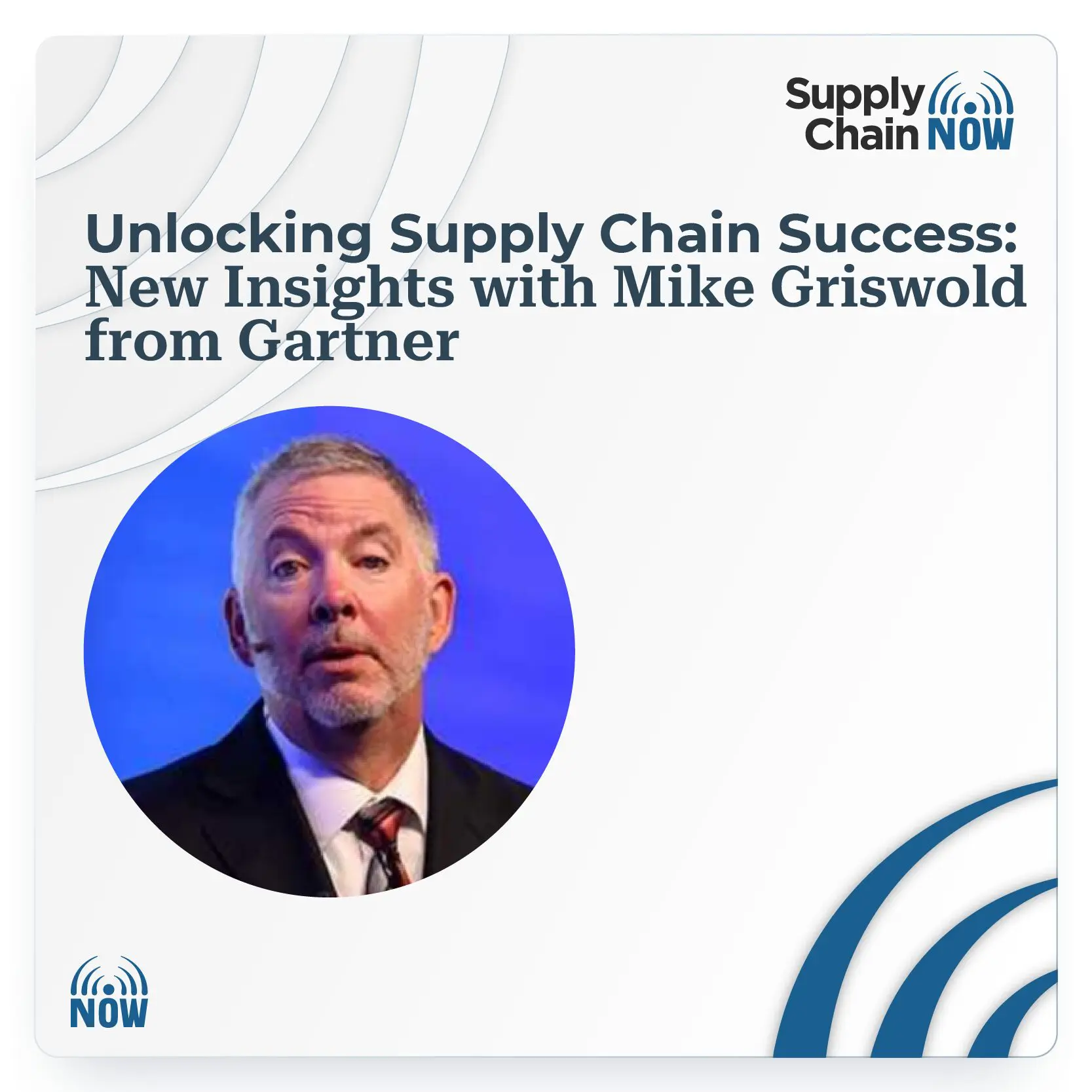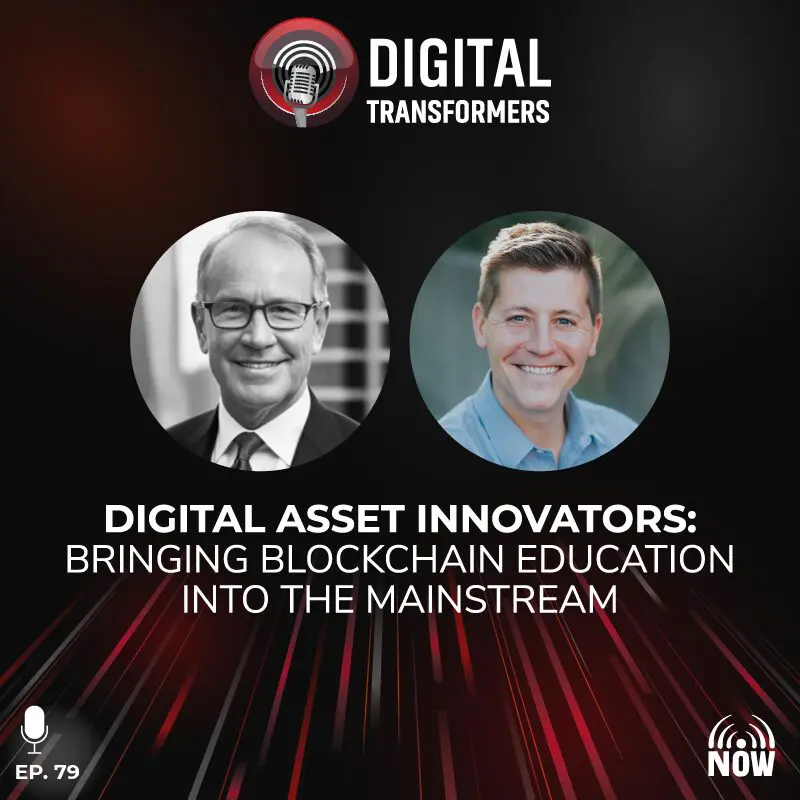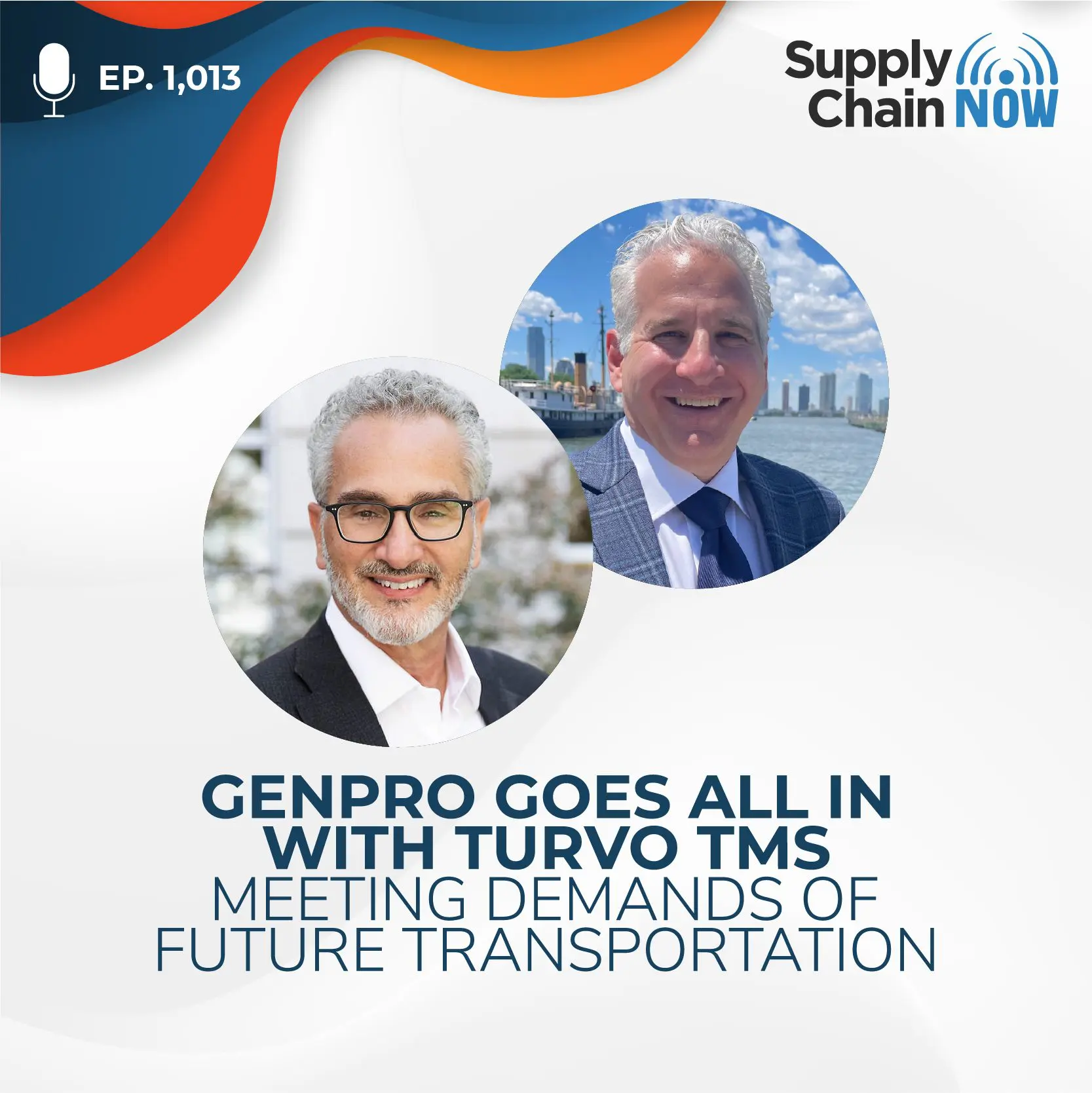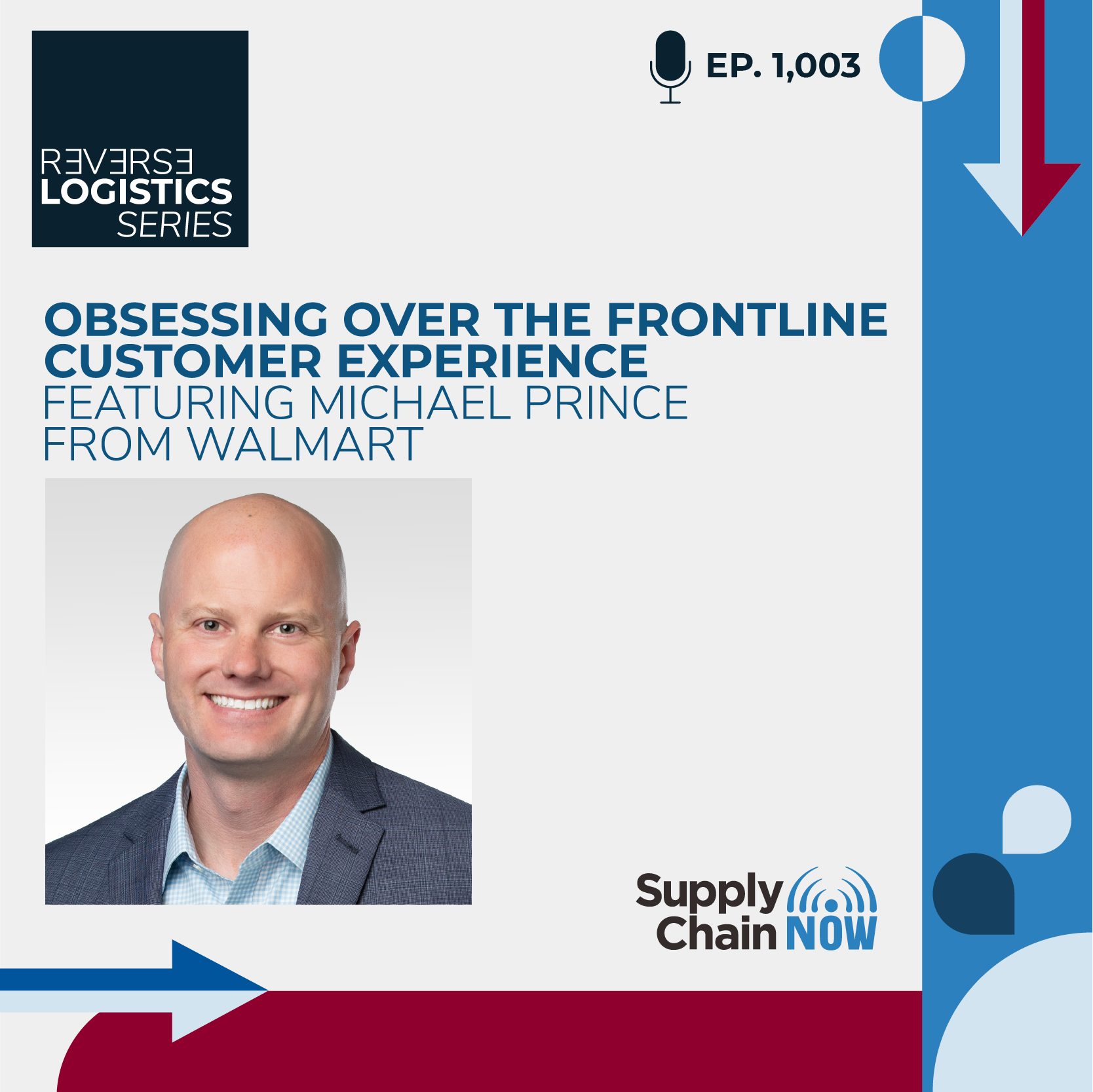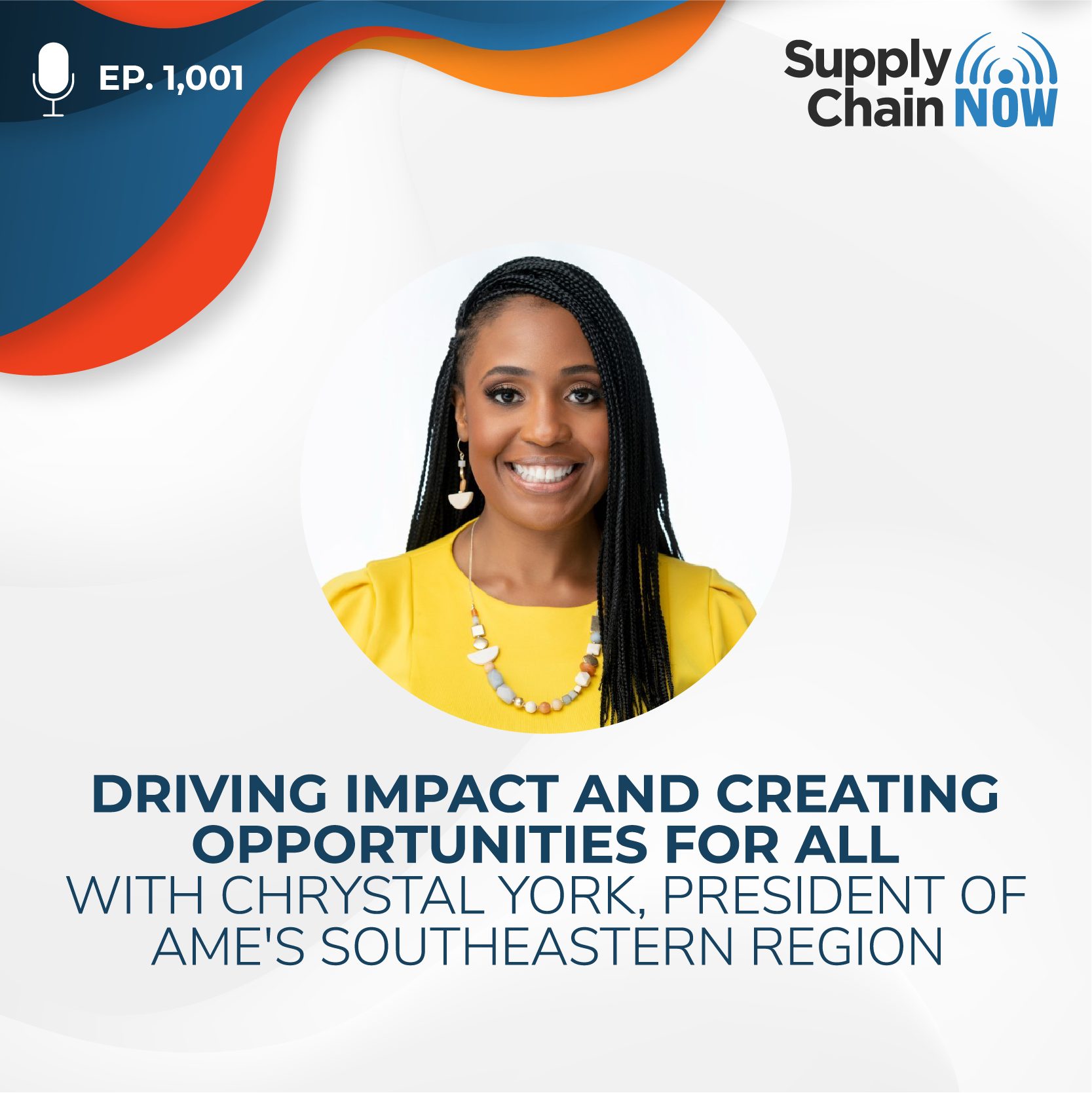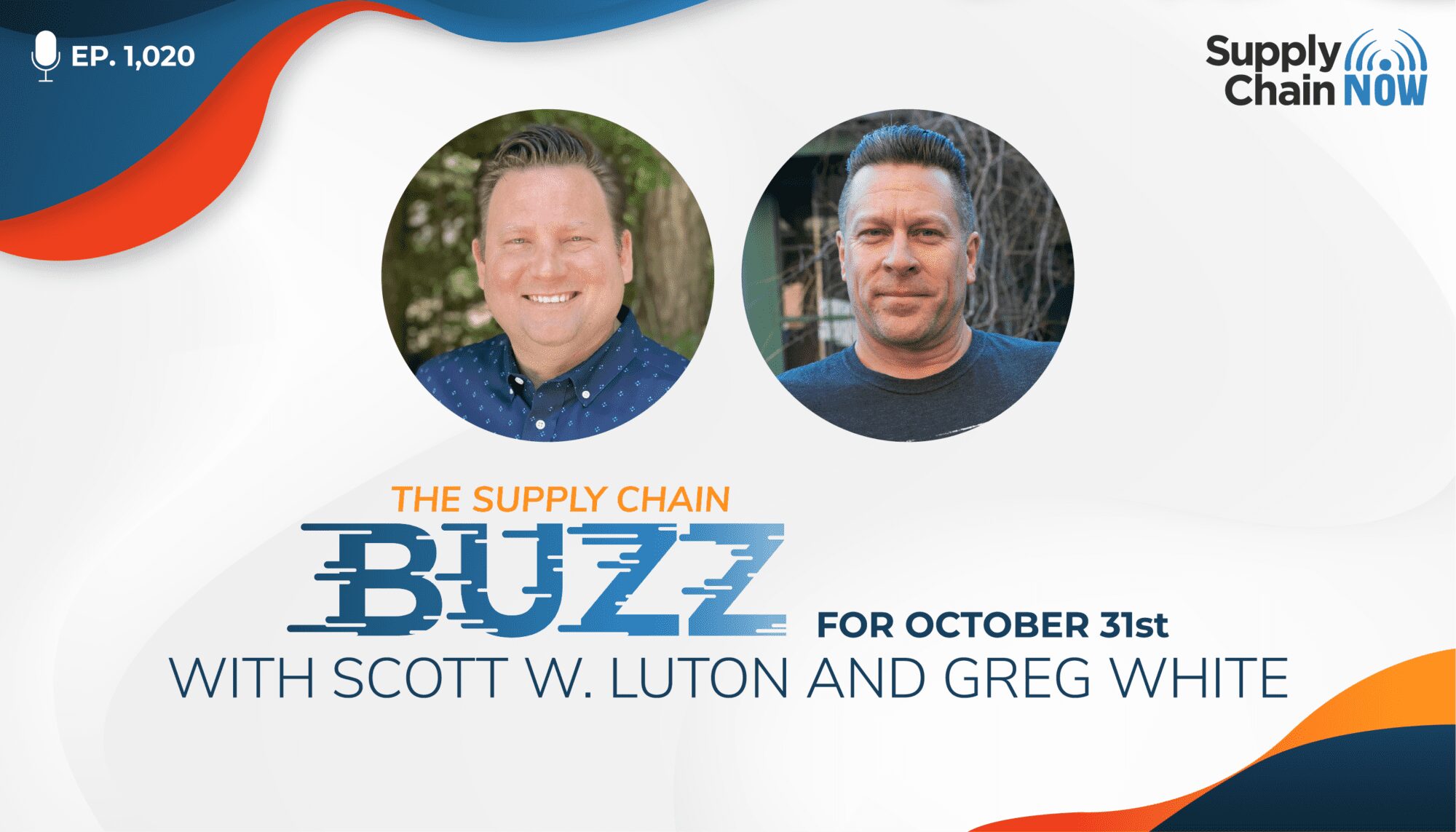
Q: How many railroad unions does it take to keep railroads running?
A: All of them.
- Greg White
Episode Summary
The Supply Chain Buzz is Supply Chain Now’s regular Monday livestream, held at 12n ET each week. This show focuses on some of the leading stories from global supply chain and global business, always with special guests – the most important of which is the live audience!
This week’s edition of The Buzz opened with Scott Luton and Greg White discussing the entertainment value and athleticism of the glamorously ascendent new sport of pickleball. In fact, there was livestreaming coverage of the recent national tournament – which may (or may not) have been inspired by the success of the Supply Chain Now team!
In this session, created in collaboration with a live Supply Chain Now audience, Scott and Greg discussed:
• The effort underway to transform the U.S. lithium supply chain, with all of its environmental and national security implications
• Why it is so important (and challenging) to achieve real time stock visibility via all available sales channels
• Whether the country celebrated the “averted” railway union workers’ strike far too soon
Episode Transcript
Intro/Outro (00:03):
Welcome to Supply Chain. Now, the voice of global supply chain Supply chain now focuses on the best in the business for our worldwide audience, the people, the technologies, the best practices, and today’s critical issues, the challenges and opportunities. Stay tuned to hear from Those Making Global Business happen right here on supply chain Now.
Scott Luton (00:30):
Hey. Hey. Good morning, Scott Luton, Greg White with you here on Supply Chain. Now welcome to today’s live stream, Gregory. How are you doing?
Greg White (00:38):
It’s good. I’m doing well, Scott. I hope you had a good and relaxing weekend. I had the weekend off because the Chiefs had a buy, so,
Scott Luton (00:44):
Okay. <laugh>. Nice. Yeah. Uh, and we, we <laugh> we were just learning where, uh, you spent those extra hours over the weekend. Right?
Greg White (00:53):
I, I watched a professional pickle ball tournament, <laugh>, the finals, all of, I got seats in the, uh, glorious and glamorous, uh, second row. Okay. The A A P P, Hilton Head, whatever, E Pickle Ball finals. Okay. Um, best $12 and 25 cents I’ve ever spent on a sporting event. Wow. Seriously? It was very entertaining. Up and coming game. Really?
Scott Luton (01:25):
<laugh>. I got a que I got a question for you. Sure. Uh, is it, uh, kosher? Is it sweet? Is it, uh, bread and butter? What style of pickle ball are we talking about? No.
Greg White (01:37):
Wow. What? It’s pretty spicy. Whatever it is, because, uh, man, they hit the ball hard. Okay. Um, yeah. And you’re, you know, you’re standing like six feet apart and just hammering the ball at one another, and it’s a wiffle ball, so it Okay. Isn’t as fast as a tennis ball or baseball when you hit it, but still.
Scott Luton (01:54):
And it’s loud too, right? Pretty
Greg White (01:56):
Quick.
Scott Luton (01:57):
It is. It’s kinda loud when you hit the ball. Yeah,
Greg White (01:58):
It is very loud. And, uh, man, they are athletes. I mean, there’s one girl who may have gotten an inadvertent nickname. I called her Bubble Gum because she chewed gum and blue bubbles. She was probably 15 years old the whole time she was playing. She was chewing gum and blowing bubbles. Like it was just
Scott Luton (02:16):
Man
Greg White (02:17):
Being second nature for her. It was very impressive.
Scott Luton (02:20):
All right. So we’re gonna have to check it out. And folks, if you had not heard of pickleball yet, I’m telling you, it has been a sport. It’s been building for a couple years now. Yeah. And, uh, it is quite the rage coast to coast. So, uh, Greg, next time we’ll send a, our, uh, a video team down there and, and you can do, uh, an on the, on the court report. How about that?
Greg White (02:39):
So they were streaming live, believe it or not, kind of like this. Wow. They had that followed the ball, which I don’t know how the heck it did it. It’s so fast,
Scott Luton (02:46):
But well paid more to come. Uh, yeah. Check out the 11, the 11:00 PM edition tonight for, uh, all the Pickle Ball, uh, cover to cover coverage. You can,
Greg White (02:56):
You can, everything you could wanna know about professional.
Scott Luton (02:59):
Hey, welcome today here, aside from pickleball, it’s all about the, the supply chain buzz where we share some of the leading stories across global business every Monday at 12 in Eastern Time. We got a, a full slate here today. We’re gonna talking about a variety of topics. Uh, so stay tuned. And Greg, as always, we wanna hear from you. So folks, uh, get your point of view, your POV ready to share and drop that in. Uh, the, the chat, the comments, the cheap seats, the sky boxes, you name it. That’s one of our favorite parts here. Um, okay. So Greg, we’re gonna say hello to a few folks in just a second. But before we do that, uh, I wanna share just a couple of things. A couple res, you know, we love sharing resources around here, right? And one of those resources, it’s one of my favorites. It is, uh, you know, we’ve been covering the US Bank Freight Payment Index for years now, and the third quarter, 2022 edition just came out. Just, um, uh, oh, well, week or two ago, chalk full of event insight on the domestic freight market. And you know what, Greg? The best part about it is it’s free. Folks, y’all can go to freight.us bank.com and sign up to get that edition. They’ll be emailed to you every quarter. Uh, Greg, what was one of your favorite parts from the third quarter? Uh, Freight payment index?
Greg White (04:15):
There were no favorite parts. Lots of warnings. And, um, you know, uh, I think, of course, US Bank can’t do this, but I think some things for telling the future, so it’s definitely worth a look. Uh, definitely need to get ready for disruption. I just read another article, seems that we’re only, uh, one quarter remove from saying we’re not in a freight recession. Right. And I just saw another article saying, we are most definitely in a freight recession.
Scott Luton (04:45):
<laugh> <laugh>. Well check it out. Uh, it looks like the team just dropped a link into comments. And, uh, you can also find, uh, I think just last week we published a replay of our, uh, live conversation, uh, uh, diving into the freight payment index. Y’all check that out too. Okay. Uh, speaking of other resources, I wanna share this one as well. Uh, with that said, our LinkedIn newsletter, uh, just hit, uh, just dropped on Saturday. And Greg, I just had to share, um, we, we really tackled the business of Halloween, right? In this latest edition. Um, so some things you don’t know about the business side of Halloween, check that out. But this is, this image here is, uh, from a couple Halloweens ago, and it was one of our favorite. Amanda and I still get tickled, uh, seeing our three kids here, uh, dress up as characters from inside out. Uh, do you see that movie Greg?
Greg White (05:37):
Never even heard of it. Okay,
Scott Luton (05:39):
<laugh>. Well, so basically, these are personalities that, uh, make up like, uh, Ben obviously is the angry and the passionate personality, right? Uh, Gracie on the right hand side, right here is the, is the despair, the sad personality. And of course, Brantley is the, uh, um, sure. In her mind, she’s the star of the show, Uh, if you can’t tell with, with how happy she is right there, But hey, lag all that,
Greg White (06:05):
Right? So, is this, uh, like, I don’t know, what is this? Is this like inside a kid? Kind of? Yes.
Scott Luton (06:12):
Something
Greg White (06:13):
Like that.
Scott Luton (06:13):
Okay. It’s been a little while since I’ve seen the mo I saw the movie as well. But yeah, inside I, it’s an animated film, and it, uh, it’s basically you’re peering into the mind of all these different personalities. Um, battle each other. Uh, as I recall, it’s been, it’s been a few years. Okay? But more importantly, check out our, uh, newsletter. With that said, uh, drops every Saturday. Uh, we’ve got almost 17,000 subscribers, and we try to make this a little different content the way you get from our podcast and live streams and, and you name it. So y’all check that out and think we’re gonna drop the link. Yeah. Join
Greg White (06:48):
Tens of thousands of your fellow <laugh> LinkedIn, uh, right members. And it’s unbelievable how that thing is grown so fast.
Scott Luton (06:57):
Hey, it’s a place to be. It’s for the cool kids like Greg White. Uh, so y’all check out with that said, one last thing, then we’re gonna say hello. We got some, some, uh, old friends in the comment. Um, so today, of course, Greg is Halloween, and it is, uh, I made a call out there, uh, for team shots. Only got one. Only got one, but it’s a good one. I’m gonna share it here. This is, uh, this is the mid gift family. This is Amanda’s family from, I don’t know, early nineties <laugh>. They broke out their Crayola costumes. And you’ll see this, this is Amanda right here, and her brother Ramsey. And of course, her parents, Fred and Val. And how about Fred being a, um, being a quite a sport. Did you ever dress up as a green crayon, Gregory?
Greg White (07:42):
I did not. No. No. Never thought of a crayon. That is an, I mean, that’s a genius and seems relatively easy, right? Costume.
Scott Luton (07:51):
Well, uh, Amanda, as, as I think she shared with us, will give you the rest of the story as, uh, the one only Paul Harbor used to say, and that may have in included, may have included an adult beverage and a fine, uh, cigar as they, uh, did their trick or treat rounds. But I’ll save that for another time. <laugh>? Yes. All right.
Greg White (08:11):
Yes. It may, in our, in our family, it may have involved a well stocked radio flyer with extra bags for the kids and the few beverages for the
Scott Luton (08:20):
<laugh>. Love that. I’m sure parents are gonna be stealing that strategy, uh, all day, Uh, or all
Greg White (08:26):
They have for decades now. Yes, that’s
Scott Luton (08:28):
Right. Um, okay, so we’ll say love to some folks. Clay Phillips Old Diesel, uh, says, Happy buzz day. Good to see you there. Uh, Clay,
Greg White (08:37):
Always love to see that
Scott Luton (08:38):
Gary Smith. He, he, you know, so Gary, if you have caught this, Greg, uh, he has officially retired and forever he’s wanted to move to St. Simon’s Island down here in Georgia. Ah, and he has made that happen. And that is wonderful. And I think also, Gary published his first, not his first white paper, but maybe his first one since being retired, kind of on the other side. So Gary, you’ll have to share that with us
Greg White (09:01):
Just down the coast.
Scott Luton (09:02):
That’s right.
Greg White (09:03):
Welcome to the beautiful
Scott Luton (09:05):
<laugh> low country, right?
Greg White (09:06):
Yeah. Well, it’s, I don’t think it’s technically called low country in, in Georgia. It is in South Carolina. I think
Scott Luton (09:13):
The gold Niles,
Greg White (09:14):
Maybe they’re all the same bunch of barrier islands. Super cool
Scott Luton (09:17):
<laugh>. That’s
Greg White (09:18):
Right. Uh, gonna be 76 today here,
Scott Luton (09:20):
By the way, man. So, yeah. Jealous,
Greg White (09:23):
Right?
Scott Luton (09:24):
Daniel, hello to you. Uh, he says, from a beautiful Boston Halloween day, Daniel, great to see you here today. Always appreciate your perspective. Hey, great to see you, Gregory, via LinkedIn. Let us know. Great to have you back. I know you’ve joined us previously. Let us know where you’re tuned in from. Hey, Gomar from Chile, Angelise, how about that? Uh, Gomar, great to have you here. Uh, Catherine, of course, big thanks to Catherine, Amanda, Chantel, the whole production team behind, uh, today’s live stream.
Greg White (09:52):
I think our people really love that name, that whole buzz day.
Scott Luton (09:57):
Is there any,
Greg White (09:57):
What they’re doing on the weekend, folks?
Scott Luton (10:00):
<laugh>, uh, say odd. Great to see you here via LinkedIn. Let us know where you’re tuned in from, looking forward your perspective. Uh, Torso says hello from Guatemala, Central America, the Land of Eternal Spring. I love that, Greg. Have you heard of that before?
Greg White (10:16):
Uhhuh? <affirmative>, yeah.
Scott Luton (10:17):
Okay. Um,
Greg White (10:19):
Beautiful down there.
Scott Luton (10:20):
I know we’ve got some folks. Um, so this is a LinkedIn setting. If you ever, if you see, if you comment and you see this and you show up as LinkedIn user, that’s just something you can change on your LinkedIn. Good evening from India. Hello to
Greg White (10:31):
How do you should charge LinkedIn for advertising when you do that? I really
Scott Luton (10:37):
Appreciate. Uh, maybe so maybe I should. Yeah, that’s a new, new business line. A great
Greg White (10:41):
Idea. <laugh>, you still get on that
Scott Luton (10:43):
<laugh>. Natalie, great to see you from Charlotte. Great. Always great to have you on these conversations. Happy Halloween to you as well. Uh, we dropped in, as I mentioned, uh, with that set, the direct link. I’ll check that out. Subscribe so you don’t miss that. Weekly, uh, Shahi is back with us from Dubai via LinkedIn. Great to see you, Shahi and old gp. Uh, Gene Pledger from northern North Alabama is back with us here. Good morning to you. Okay, Greg. I know we couldn’t hit everybody. Y’all keep it coming. We’re gonna reference as much of, um, of the comments as we can. And by the way, Gary says Yes, it’s a golden aisles.
Greg White (11:18):
Golden aisles. I, I was thinking Gold Coast, but that’s Chicago golden aisles. That’s what they call it in Georgia. That’s
Scott Luton (11:24):
Right. Yes. Uh, hey, Sheldon, uh, says I should share a pick of my accounts receivables. It’s pretty scary. Happy Halloween. Uh, Adrian, uh, dressed up as a reptile from World Combat, one of the legendary games, video games of all time. And, uh, finally, Kim Winter. Great to see you from Dubai. The one, only Kim Winter is here with us in the house. Great to see Kim.
Greg White (11:49):
He could actually dress up like a rugby player because Yes, he’s probably still got the uniform.
Scott Luton (11:55):
I bet he does too, Kim. Let us know. Send, be Yeah. Send us a picture. Or didn’t
Greg White (11:59):
Have. Yeah. For any of you who don’t know, he’s a mountain of a man. <laugh>. I mean, you can see the rugby player when you see him, if you’ve ever seen any of his pictures around the world, right, Scott? I would’ve never been.
Scott Luton (12:10):
Yes. Not only is he of a man
Greg White (12:12):
From kinda here up, it’s hard to figure out what they look like. He is a giant,
Scott Luton (12:17):
And when he’s not being a mountain of a man, he’s moving mountains across industries. So y’all check out <laugh>, check out. Good winner. Okay, so Greg, we gotta get to work here, man. Yeah. Uh, we have got, I think five stores is what we’re gonna, uh, jump into. And we’re starting. Yeah. Get ready. Buckle up. We are starting with this story. Greg. Um, you sparked quite a discussion, uh, last week as you were talking about, uh, on one of your, uh, th Rice Weekly supply chain commentaries every Monday, Wednesday, Friday. Um, and you sparked quite a discussion on this one. I think this might have been from last Friday or last Wednesday. This focused on the effort underway to transform the US lithium supply chain. So tell us more about this, Greg.
Greg White (13:02):
Yeah. Well, there’s two things that struck me. First, um, was what I stated in kind of the opening statement of the summary, which is on LinkedIn, by the way, if you wanna see it. And, um, a few thousand of your, uh, fellow LinkedIn members have, have looked at it and commented on it. Um, and that is, are we trading one environmental disaster for another? Right? And the other is, um, sort of the fools errand that it is for the, this is particularly about the United States, right? But the fool’s that it is for the United States to try to produce lithium, because the United States holds only 3.6% of all of the lithium stores, all of the lithium that exists on the planet. Hmm. And in fact, the two most prominent countries are Chile, who has about 71%. And Argentina Bamo, uh, who has, uh, is second at 21% of, of the stores.
Greg White (14:02):
And, um, and it’s a very environmentally destructive method by which you mine lithium. And, and by the way, to that point, the way you mine the other rare earth elements that go into semiconductors. So we’ve had that, we’ve had that discussion over the last several years or weeks, sorry. Um, so my call out in the article is really for us just to not be, uh, in such a rush to try to, uh, to try to accumulate all of this, this raw material so that we do exactly the same thing that we’ve done with fossil fuels. We don’t think about the implications of fossil fuels, right? Um, just like I, I’d prefer we not fail to think about, not fail to think about, not fail, to think about the implications of all of this incredibly destructive mining that’s required to do this. And I know a lot of people, they could really give us about Chile or Argentina.
Greg White (15:02):
I happen to care. I still have family there. Um, so, um, you, you know, let us not shove, shove this off onto some couple of third world backwaters, as most people see those countries. And unfortunately, largely true, especially in the case of Argentina, uh, they seem to have a government who is all at once inept, corrupt, and teetering on destruction at all times. So kind of the, uh, what should we call that, the trifecta. But in any case, I think we just need to keep our eyes open, make sure that we are, um, avoiding creating further environmental disaster in a rush to try and find alternative energies. Hmm. So that’s the largest part of it. There’s a lot more, um, we can go into and you can see what some of the discussions have been, um, interesting that few people from that I know anyway from, um, South America have sounded off on this.
Greg White (16:04):
But, uh, you know, the, I I think we have to be conscious that some of this is political pandering because it’s popular, um, and not well thought out because, well, they’re politicians. They don’t know any better <laugh> poor guys. You just feel so sorry for ’em. And they’re all lawyers too. That’s the other thing, right? How can they be so naive and mm. Uh, yet be lawyers? Uh, anyway, but I, I think it’s a good discussion to have. I mean, let me just one quote I want read here. So, Venkat Trini, who is the director of the Argon Collaborative Center for Energy Storage and Science, Okay? The Argon National Laboratory is our top laboratory for these all kinds of scientific initiatives in the United States. And he’s, his statement is, Where is the supply? We don’t make electrode materials. We don’t make materials that go into the rest of the battery, and we don’t process the minerals.
Greg White (17:02):
We don’t even mind them. Hmm. That, that is his response to this multibillion dollar initiative on which the federal government has plowed billions into companies to try and generate, almost to manifest, um, out of the ether, uh, right lithium for these batteries. You know? And one of the challenges that, or, or one of the potential solutions, this is what I believe about semi-conductors as well, is we need to find synthetics or create synthetics for how we create batteries. It makes me think back all the way to the nineties, Scott, when, um, I had a friend, uh, Steve Weber, who worked at a company called Air Technologies, AER Technologies, and they were trying to make an air a I battery,
Scott Luton (17:49):
Okay?
Greg White (17:49):
Somehow used, I don’t know, nitrogen or whatever, to try and create storage capacity for cell phones and, and cars, and even back then, electric vehicles. So there are initiatives underway. There need to be more, and we need to, rather than try to strip the earth of yet another natural resource, we need to find alternatives or generate synthetics that can do the task.
Scott Luton (18:13):
I like that. Um, in, in some ways, it’s like asking the Chicago White Sox to go play a game of football, uh, in the Super Bowl, right? We gotta be smarter and savvier about using
Greg White (18:23):
Money balls, statistics for football about youth.
Scott Luton (18:26):
What’s,
Greg White (18:26):
What’s Patrick Mahomes on base percentage? Who cares?
Scott Luton (18:30):
<laugh>, irrelevant. Irrelevant, right? Well, really enjoyed that. We, again, folks would drop the link in there. We’d love to get your take. So y’all can use that link to tunnel over to LinkedIn and you’ll see other perspectives, uh, folks that comment and own, uh, that supply chain commentary. Again, follow or connect with Greg, uh, for those every Monday, Wednesday, and Friday. Okay. A couple of quick comments here. So Gregory, um, he, and I’ll ask where he’s from. He’s tuned in from Trinidad in the sunny tropical Caribbean. I love that.
Greg White (19:01):
Yes. Beautiful.
Scott Luton (19:03):
Uh, Joe is from Windsor, uh, probably Canada, Windsor, Canada, right? He’s Canada,
Greg White (19:08):
Yeah. Right across from Detroit. Been there many times as a kid for the, uh, tour of their local beverage plant.
Scott Luton (19:16):
<laugh>. Okay. Uh, and Carl continuing <laugh>, he’s continuing the Halloween theme. The merge is scary enough for most folks. And hello from Tampa, Florida. Good point there. Uh, Carl, great to have you here today. Okay, so speaking of perfect segue, Carl, you’re right on the money here. Perfect segue. Cause Greg, we’re gonna talk about, uh, kind of the business side of Halloween. And in particular, we’re gonna be talking about, um, what the 2022 Halloween may look like in Halloween supply chain planning. So I enjoyed this article from our friends over at Forbes. So check this out. Greg, our, uh, John Gold and our friends at the National Retail Federation, NRF is projecting that a record 10.6 billion will be spent on Halloween supplies this year. It’s a whole bunch of TWIs, I know that. Uh, but in order to successfully capitalize on all that business, of course, an organization has to bring, its a game when it comes to, in particular, supply chain planning.
Scott Luton (20:17):
You know, for example, when it comes to Halloween candy, a lot of companies have only 6, 7, 8 weeks to plan and execute a successful Halloween strategy between sourcing, making, warehousing fulfilling. Oh yeah, we gotta sell it, right? Selling adult, Let’s not forget, do that because come November 1st, as we all know that they ran after Halloween, that all that ghost themed candy and and seasonal Halloween items loses a ton of it’s worth and value. And it also takes up tons of space as well, lots of of discounting. We know some of the best deals to get on Halloween stuff is on November 1st. So in this article, uh, Gartner touts real time visibility of stock availability across all channels, right? That’s been all the rage for years now, uh, especially for, for companies that really get that visibility across all channels and act on it. And, uh, IDC survey data shows inventory management is a top five priority for retail supply chains, where leaders do big things in that space now and planning on spending a whole bunch of money in the years ahead. So, that’s enough of my key takeaways on this subject. Greg, what are some of your thoughts here?
Greg White (21:25):
This is some of the hardest product in retail in supply chain to, to predict, because you can’t use last year and you can’t use the year before. You can’t even use the combined two years because the data doesn’t reflect what’s gonna happen this year, because we were under exceptional circumstances. And in fact, you’re better off not ever using the history of this kind of thing. You have to understand the influences. And I think companies are doing a better job, or at least this article shares that they’re attempting to do a better job of understanding what are the influences that are gonna cause people to be more active, more have, have already caused them, by the way, because Halloween is effectively over, right? Um, from a, from a commerce standpoint, right? Um, has caused them to buy so much. I’m curious whether it will be that high. I think the combination of the obvious downturn in the economy economy, although the GDP last quarter was up 2.6%, mostly on price increases, not on unit volume, but, and the fact that inflation has hit so dramatically and continues to persist, right? I wonder if people aren’t tightening the belt. I don’t know. We’ll see some tonight. I can tell you that my granddaughter got to do a little bit of, uh, Halloween
Greg White (22:48):
Trunk or treating, if you’ve seen those. I love it when like, uh, malls and churches and other people do safe trick or treating in their parking lot or in the mall or whatever. Uh, and it’s really cute when you got a little kid doing it <laugh>, right? Well, you don’t have to walk as far, and they don’t get harder to get the radio flyer and, uh, the backup beverages into a church parking lot,
Scott Luton (23:09):
In addition. Very true. <laugh>. Well,
Greg White (23:12):
No, I mean, I think this is, this is really critical, but I think it also goes to a point, um, I can’t even believe we’re talking about inventory management. I think people envision inventory management. The term inventory management is meaning something much greater than it is. All it is is counting inventory. It’s how, it’s what’s typically called perpetual inventory in a store. The automatic, um, accretion and decre and uplift and downturn of your inventory as things sell or, or come into the store, right? Um, and it, it’s table stakes has been table stakes for retail for decades. I mean, I worked for a retailer in the early nineties that had perpetual inventory. We knew precisely what we had. Now, not always in real time, right? But that this is still an area where companies need to spend is frankly, very concerning to me. This is something that should be handled. Uh, I see. Why not at maybe manufacturing level, right? Um, it’s definitely mission critical at retail level. So if you haven’t done it, if you don’t know what you have, good lord, please do something
Scott Luton (24:23):
Soon. Catch up, catch up. Well, you know, uh, so Party City and the article spoke this a little bit. So Party City, of course, what they spent spent, right? Yes. Well, they’re open all year long, right? Yeah. But Halloween is their biggest season of all. I was a little surpris with, that’s their right. Um, they also, in fact, to handle a lot of, um, the Halloween volume. They purchased a contract manufacturer that, that focuses on the costumes and plastics going to that, Uh, I think in Malaysia, I can’t remember which country that was in. Um, and I think what you were alluding to, what, 20,000, How many, how many, how many season employees did they bring on? I mean, it’s amazing.
Greg White (24:59):
Thousand employees. Yeah.
Scott Luton (25:00):
Wow. Um, so, uh, parties and, and I didn’t realize that they were, they’re behind some of the pop-up shops that we’ve seen, you know, that will be in business for, you know, three weeks or a month or whatever, right? Take advantage of, of, uh, all the goodies. So, um, interesting. I love the business behind some of these holidays because there’s so much in, uh, consumers blind spot, less maybe than there was a couple years ago. But there’s so much. It’s fascinating. It really is. Um, alright, so I wanna go back to a couple things. Um, get a couple comments on what we were talking about a minute ago, which your comments around lithium supply chain Gomar says, uh, can’t agree with you more, Greg. We are definitely solving one problem with another. No balance or, Yeah. Yeah. Um, and then Gary says, Great comment, Greg. We need to find synthetic alternatives for scars, resources, Great insight. And, and also, Gary dropped his white paper link. I appreciate that. Always good stuff coming from Mr. G.
Greg White (25:59):
Interesting. All, all discussions around China are very interesting right now, because as their economy collapses and it is an absolute collapse, they are becoming more dictatorial and aggressive, right? So, um, as if China was not a big enough danger, right? As their population ages and their ability to maintain growth in their economy yes, reduces, they are gonna become more and more dangerous, just like all unstable companies, countries do like Russia,
Scott Luton (26:31):
Right? Or, and we’re gonna touch on some of the, uh, volume shifts to your point here, I think in our fourth or fifth article here today. So stay tuned for that. I can’t wait to get Greg talk in China. Um, okay. And then finally, back to the Halloween story. Lots of stuff to tackle here. Adrian says, when he worked in distribution, Halloween inventory needed to start exiting no later than mid-October to one week prior. He managed capacity and 1.6 million square foot facility. Wow, that’s
Greg White (26:59):
Big. That’s a lot of candy. How
Scott Luton (27:01):
About that? Uh, capacity management and inventory management sound alike, but they’re two very different beasts.
Greg White (27:07):
Excellent point. An excellent statement, right there they are. And each of them very, very tight niches, right? I think I’ve seen it because I was in a different area of supply chain. Um, well, supply chain planning and right. All of that. And often that gets confused with inventory management, which is really just account of what’s on the shelves.
Scott Luton (27:29):
Mm. All right. So we’re gonna move straight from, uh, Halloween supply chain planning. Halloween, the business following to a, um, a story that’s picked up some steam, no pun intended here in the last few weeks. Say, um, so Greg, quick update on this potential rail strike. Right? Uh, so lemme share a couple items here. As reported by cnbc, two, Labor unions now have voted against the labor agreement that had been brokered by a variety of parties to include the White House. More votes from other unions are, are still to come now. A general agreement amongst all parties has been made to keep the status quo, right? Keep things moving in terms of the operation of the railroad industry while these negotiations continue. Now, as I did last time, we talked about this story, Greg, I reached out to a childhood friend of mine. I’m not sure how many folks out there, Noah, uh, an engineer, a railroad engineer they can just reach out to and kind of get their take. So I thought it was pretty cool. So I’m gonna call this friend of mine, Ted, right, and protect his and an an <laugh> anonymity, if I can say
Greg White (28:34):
That, right? I’m ne
Scott Luton (28:35):
<laugh>, right? So
Greg White (28:38):
Making think of finding mimo there. So,
Scott Luton (28:40):
Oh gosh, no kidding. That’s
Greg White (28:41):
A great, by the way,
Scott Luton (28:44):
So Ted is a railroad engineer and has been in, in the industry all of his adult life, right? I, I remember him as a kid. He loved everything related to trains. So it’s really cool to see someone, you know, find their, you know, know what they wanna do and do it. Um, now his union hasn’t voted yet. Uh, they expect to get their ballots later this week, and he said he’s leaning voting for the proposal, mainly because he doesn’t think the deal’s gonna get any better. So it’s as good as, as it’s gotten. And he especially likes the back pay and the bonuses, right? I, I think he mentioned he’s got a potential to get a, a big check before the holidays, uh, if the deal is indeed passed and of course executed. Now, when I asked him about the likelihood of a strike, Ted says that signs in his shop, at least already have been made into planning in terms of where they’re gonna do it and how they’re gonna do it. Already been done. So, Greg, uh, your thoughts on, uh, potential railroad strike and, and how these negotiations, uh, are playing out.
Greg White (29:40):
I mean, don’t you feel like we ought to have Kelly Barner here? I mean, she talked about this at great length, and she’s got some great articles about this that she’s posted, or some discussions that she’s posted on LinkedIn as well. But a number of things come to mind in no particular order, kind of stream of consciousness, we’re starting to get tough. Labor’s starting to get tough just in time for layoffs. Huge, enormous numbers of layoffs throughout the economy. Um, and, and, um, I thought of it as kind of a labor, uh, whiplash effect, right? Labor asked for more money just as companies are gonna start laying people off. Uh, you know, the other is that it only takes a couple of these unions, right? To, to our, our how many parts does it take to make an f150? All of them <laugh>, right? How many, how many railroad unions does it take to keep railroads running?
Greg White (30:35):
All of them. So it only takes a couple of them to hamstring the, the railroads, uh, railroad, um, logistics. Um, and I, I, I think there are just so many, uh, other considerations. I, I like Ted’s take. Yeah. I’m gonna vote yes, but we’re ready if it’s no, Yeah. Talk about supply chain preparation, right? They haven’t even had the vote yet, and they’ve already got the signs and right. And where, which corner you stand on Ted <laugh>, right? So, um, I, I don’t know. I mean, this is not an area of my deep expertise. It’s just an area of crave concern. Um, and I have to tell you, even when the White House declared victory, guess who to guess who warned us not to celebrate too early Kelly Barner.
Scott Luton (31:26):
That’s
Greg White (31:27):
Right. Because not all of the votes had been taken yet. So
Scott Luton (31:33):
You gotta wait. So
Greg White (31:35):
It, it’s a, uh, very 10, uh, precarious, I was gonna say tenacious, very precarious situation.
Scott Luton (31:43):
You know, Um, whenever I hear the word tenacious, it always reminds me instantly of 10 D Black. Yes. Yeah, Jack Black and his buddy that had that, uh, that band <laugh> back in the nineties. Um, well, hey, stay tuned for more. Um, it, it is, I think it’s, you know, Greg, much like you, I am not a real world expert. Uh, I love being able to reach out to an engineer. It’s been his whole life. That’s fascinated to me. I love doing the interview with Ted. We’ll see if we can’t work on that, but, um, stay tuned as this thing continues to develop and, uh, we’ll see where it goes. Um, alright, I’m gonna catch up on a couple quick comments. Uh, by the way, thank you, Gregory. Reassuring a resource there as it relates to a global standing for track, track, and trace in multimodal modal transport. Fascinating. Check that out. Thank you for sharing, Greg. That
Greg White (32:30):
Was really valuable.
Scott Luton (32:31):
Yeah, we, we dropped the, uh, article for the, um, story we just tackled a second ago, and Daniel’s taking it back, back to China. Uh, Daniel says, Greg, spot on about rising China tensions. Just look at the new US military strategy released recently. Number one identified threat. China more than Russia. This will have, Daniel says, is having big impacts on global supply chains. Completely agree point. And I think Daniel is an expert amongst other things in risk mitigation, risk management, if I’m not mistaken. Um, good stuff there, Daniel. Yeah,
Greg White (33:07):
I wanna see that article.
Scott Luton (33:08):
Yeah, that’s right. So pass that along, Daniel. Uh, we’ll keep the
Greg White (33:12):
Resources, put the link in that post, right?
Scott Luton (33:14):
Oh, um, we will find out. We’ll see. All right. So Greg, um, let’s take a break for a second. Uh, speaking of Russia, uh, let’s take a break for just a second. So I wanna update folks on our leveraging logistics for Ukraine initiative. Now, we know we’ve talked at length about the great work that Enri Avarez, Maureen, uh, Wolf Schlager, that whole team at Vector Global Logistics is doing, um, with this Ukraine Humanitarian aid initiative, their latest development. One of the things we’re working on now, Greg, is they’re, um, getting letters written. Do you remember back? Um, it doesn’t happen as often these days, but then we’re back in the eighties. You check the mailbox, you get something from somebody written to you and is really special, right? I I, I mean, I remember that feeling time and time again. Yeah, I look forward to getting the mail every day.
Scott Luton (34:04):
So along those lines, they are creating, leading this letter writing campaign to get letters to Ukrainian school children. Your letters of support, like some of these examples here. So if you wanna participate, we’ve got the link there in the chat. Y’all can check that out. Um, I’m, we’re reaching out to see if our teachers can maybe help, uh, get their students or write letters. So y’all check that out. Or in general, if you’re interested in kind of getting a sense of everything that this initiative, um, has got its hands in and the outcomes, it’s driving over 500,000 pounds of, um, aid have already been shipped to Ukraine, Poland, and the region. Uh, and what drives that are these monthly planning meetings. So November 15th, 11:00 AM is the next one, and we’ve got the link for that in the chat as well. Greg, your thoughts around the program, the letter writing campaign, you name it.
Greg White (35:00):
Yeah, Wish we could, uh, wish we could put military personnel in those things and send him over there and just <laugh> in the Russia problem. Yeah. Um, no, I think this is an incredible cause. Look, we’ve contributed to this thing a tremendous amount, and Enrique and his team and Marine and, and the rest of the team have been, um, very active, super gracious. And even if you just wanna tune in and watch or learn about what’s happening or what’s going on, and there’s also, I believe he says his name, Grego in, in, uh, Poland, who has, I don’t, I don’t know that he’s not, or that he is still not working, but he basically left his technology company to, um, manage all of this because so many Ukrainian, uh, people have, have migrated to Poland and other countries all around there. Um, look, it’s, I mean, even if, even if all you do is get on there and get ideas, it is really a valuable, uh, valuable time to sit in on these calls. And if you want to give, uh, you should reach out to the folks at Vector because you will be astounded at how affordable it is to fund a, um, fund, a container to go over there. Just, just the container itself. They’re giving all of the materials that go in it, right? But I mean, if you want to pool some money with, you could probably do it with some golfing buddies or some pickleball buddies,
Scott Luton (36:32):
<laugh>,
Greg White (36:32):
And, I mean, it’s that, it’s really reasonable. Yep. Really very reasonable. Thanks to the generosity of a couple of big carers.
Scott Luton (36:40):
So folks, jump in, join in wherever you can, you know, and, and if you can’t give, right, right now, no matter how small or how big, hey, join us for the planning session on November 15th, and we’ve got a link to that for more information there in the chat. So thank you, Greg, for your comments. It is a, I tell you, it’s, it’s, um, supply chain with a purpose, logistics with a purpose. I mean, it’s, uh, the outcomes are driving. It’s just remarkable. All right, So, uh, Greg, you asked, and Daniel, uh, Daniel has provided that article about the new US National Defense Strategy. So y’all check that out. Um, also, Gary dropped a great read, uh, in the New York Times about the railroad industry, and I agree. I saw that earlier, Gary. So good stuff there. All right, so Greg, we are now going to talk China.
Scott Luton (37:31):
So lemme tee this up, and I’m dying to get your take here. So, interesting story again from cnbc. According to there, they have a supply chain heat map, Greg, kind of like the, uh, your, um, your algorithm. You’ve got, uh, with shipping, uh, vessels. So China is losing manufacturing and export volume share, uh, export market share to a variety of its Asian neighbors. We’re talking volume and sectors such as clothing, accessories, footwear, furniture, office technology, name. A few countries make big gains include Vietnam, Malaysia, Bangladesh, India, and Taiwan. And the chief reason cited, uh, for China’s volume losses, market share losses is its zero Covid policy. Uh, and the article really speaks a lot about what Vietnam’s been doing. In fact, they’re investing heavily in, um, their infrastructure to handle and grow the volumes Fascinating. But Greg, uh, your thoughts here,
Greg White (38:28):
Good rids. Um, my, I, you know, you know, I have always believed that China’s nobody’s friend, truly nobody’s friend. I mean, there G Ping has just been elected, you know, and if he hadn’t been elected, he would’ve found a new electric and off the old one. Uh, but he’s been reelected by the party to run what is effectively a lifetime term for him. Um, so he has nothing to lose and everything to gain. He has an aging populace. He has billions of dollars lost in cities that will never be occupied. I don’t know if anyone has ever seen this, but they have a number of cities around the country that will never, ever have an occupant. Their, uh, production capacity continues to dwindle as they’re as, because of, of Covid, because of people moving to alternative and more, uh, ethical organizations. They still have an enormous slavery problem in Xin, Jon Province, regardless of their denials.
Greg White (39:30):
Um, it seems like only the NBA still supports China. So, um, <laugh>, um, I’m not, yeah, I’m not sure, uh, about the details of their eco economic issues, but they are substantial, and they do put tremendous pressure to be more aggressive. So this potentially destabilizes and accelerates the takeover of Taiwan, which is now inevitable because, um, not just this, not just this administration, but because US administrations have folded to China because they hold, they, you know, hold so much over us in terms of owning debt and, and sourcing for the supply chain. But get this, I just so happen to have had a discussion with a few chief supply chain officers who I’m gonna paraphrase in my terms, but without the, uh, implied profanity, I think they feel equally, equally, um, emphatic to this. And I think there are a lot of companies developing a China policy when, when it comes to how do we source goods, right?
Greg White (40:40):
They want to get out of China. A lot of comp, a lot of companies talking about obviously, Southeast Asia, which China could also choose to colonize at any time. And they have absolutely no defense. None of those countries do. Um, but also India. Now, India has its own, I know, deeply denied, but its own slavery problem. In fact, 18 times more slave, arguable defined as slaves by our, our friends at Hope for Justice and other organizations than even the Jin Jong Province. But they are an ethical and more democratic, uh, political system and generally, uh, leadership, um, style. So I, I think we’re gonna see a lot of companies looking towards India for more, um, you know, for more production assistance, because they are the only population on the planet that could even remotely approach the number of, of factory workers. And labor is still heavily required. The number of factory workers or the, or the amount of production capacity that China can
Scott Luton (41:53):
Yep.
Greg White (41:56):
Much better doing business with India than doing business with China. I think we all would. I mean, you, you can see it every day, right? Yep.
Scott Luton (42:04):
I think by 2030, India, uh, India’s population is gonna be surpassing, uh, China’s population. How about that? I think it’s as early as
Greg White (42:11):
2021 child policy, right? Which were almost all boys because they gave the girls away to us in the States. Thank you. Um, yeah, I mean, I think that that’s now inevitable. In fact, I think for at least a generation population decline is inevitable in, in China. So
Scott Luton (42:32):
Lot’s interesting stuff.
Greg White (42:33):
I mean, that does unfortunately make them more dangerous as they become a less important economic, um, force. It does make them more dangerous.
Scott Luton (42:45):
All right, So thank you, Greg, for, uh, your commentary there. We also dropped the, uh, link to the article, um, in the cheap seats. Y’all check that out. All right. So Greg, we’re gonna bring it. We went, Uh, we’re kind of going around the world a little bit here, Uh, today. We’re gonna bring it home to, uh, another interesting, um,
Greg White (43:05):
Yeah, right back to the Midwest, right?
Scott Luton (43:07):
Here we go. It is, it, it’s, it’s fascinating to see what’s taking place here. Excuse me. So I’m gonna give a quick update on the Mississippi River water levels from our friends at, I think I’m gonna say this right? Naches, Naches,
Greg White (43:22):
Naches,
Scott Luton (43:22):
Naches, Democrat, The, the Naches Democrat newspaper is where this story comes from. So as we’ve chatted about in recent weeks, the mighty Mississippi, well, it’s approaching historic water levels that were, uh, set back in 1988, I believe. Um, it’s been highly disruptive, as you might imagine, to barge traffic. Now, that might be in the blind spot for a lot of folks. Um, but not only in, as you see here, the traffic navigating upstream and downstream, but even more challenging is, uh, getting them docked, right? Because of naturally where docks are and how, where the water’s receding, you know, from so shipping costs, as you might imagine, Greg has been astronomical. The increases and barge capacity barges that can move, have been impact as well, because they can’t load them, uh, as full, Right,
Greg White (44:11):
Right. Because they’re run too deep, right?
Scott Luton (44:13):
Right. And one last thing here, cause um, I think this really this little nugget I’ve been sharing with folks. So this is a 15 barge, uh, assembly or what, whatever they call it, a 15 barge, uh, toe probably. So this capacity on that 15 barge toe, um, equals over 900 tractor trailers. Goodness gracious. Wait,
Greg White (44:40):
Did you say each
Scott Luton (44:41):
Barge? No, no, no. The 15. The whole toe. The whole toe. 900. 900. How about that? So we gotta keep this going. We’re all praying for rain. Um, but it, one last point, Greg, I’ll get your thoughts in the article. Again, this is from, uh, the Natches Democrat. They talked about how for the last 10 years, it’s been high water levels, they’ve had the, has been the primary challenge, right? So, uh, your thoughts are Greg,
Greg White (45:05):
The mighty Mississippi, right? Uh, I was just talking to someone who is a resident of Minnesota, and they said even in, in Minneapolis, the Mississippi or around Minneapolis, the Mississippi starts with a series of, of tiny, tiny little creeks that are literally about inches or feet wide. Thousands of them. And many of them have run completely dry because the snow melt. Wow. Um, has, you know, has ceased or springs, whatever. I don’t know. They’re fed a number of different ways. Um, but they’re experiencing a drought up there as well. So, um, you know, it starts right at the top of the river, and there is, to your point, 900 tractor trailers. There’s no practical way to do that. I don’t know how many grain hauling trailers there are in the country. I bet somebody out there in our audience does, but I’m not sure you could deploy them all at once, um, in any way.
Greg White (46:09):
So this will continue to be a limitation. <laugh>, It’s funny, Scott, I went to the doctor for an annual, uh, uh, visit to my doctor, and he said, You might, you, you ought to get on a keto diet, blah, blah, blah. It, it’ll make you feel better because there’s too much gluten and wheat and all those things now, right? Yep. And, uh, I’m thinking maybe we all ought to consider a, a keto diet because with the limitations placed on us by, um, Russia, though they did release several ships, there’s now no promise from Russia that they’ll allow Ukraine grain stores to, to be released acro and, and to sail across the Black sea. They withdrawn from that agreement. And this getting grain is gonna be very difficult. Even when the grain exists, it’s gonna be very difficult to get it to the factories where it can be processed. Right? So maybe now is the time to
Scott Luton (47:06):
Go keto.
Greg White (47:08):
Yeah. Reducing your, your flour grain intake.
Scott Luton (47:12):
Um, that’s an interesting thought. We’re gonna ponder that.
Greg White (47:15):
Uh, well, I mean, what, what do we say, Scott?
Scott Luton (47:18):
The, the more you know, the,
Greg White (47:20):
The consumer is the beginning and the end of the supply chain. Ah,
Scott Luton (47:23):
Yes.
Greg White (47:24):
Right? If we consume less of this, then less of it has to move. The prices go down as demand goes down. Um, so, you know, it might be time to, to think about that. And let me tell you, coming from someone like me, you know, it’s very painful to say reducing bread, right? As part of my diet, right? Regardless of what the Bible says, <laugh>, this man could live on bread alone. Um, but I try not to. So, uh, I I’m actually getting fairly conscious about that. I can’t say really I’m really committed yet, but,
Scott Luton (47:58):
Well, yeah,
Greg White (47:59):
I was thinking about it because they were talking about, they were talking about food shortage, global food shortage, and every time they talk about global food shortage, they talk about grains. Now not everybody has the opportunity to eat other products, right? Some, some people that’s all they eat is, is grains or, you know, wheat products and that sort of thing. So that, that’s gonna be a struggle. But for those of us who do have the option that does leave those grains, for those people who predominantly depend on those things, it’s
Scott Luton (48:29):
A thought. Yep. Agreed. Agreed. Check out this comment that Natalie just shared now. It says this has happened before. And will again, how many next generation supply chain professionals are gaining the experiences of these situations on us? Waterways, excellent comment.
Greg White (48:45):
There’s a lot of that. I was thinking about that. Um, as well. There, there are a lot of things that haven’t happened in the, um, working lifetimes of, of some of these younger generations, Right. But they have happened before. Right? This isn’t the end of the world. 1988 was a long time ago, Scott. Right. But we were alive. They, Yes,
Scott Luton (49:07):
That’s
Greg White (49:07):
<laugh>. And uh,
Scott Luton (49:08):
I guess we were <laugh>, um, we managed to thrive. New Cook I think was alive then as well. Um, <laugh>. So quick comment. And, and, and I see, hey, my mom is back in the audience. Mom, you make a great point there. But I’m gonna, getting to Gary’s first, Greg, that may be good for the west, but there are billions in developing countries that rely on grain. Yeah, that’s a good point. Exactly.
Greg White (49:29):
Point I was making. If we, if we consume less of it, it then it
Scott Luton (49:34):
Frees it up
Greg White (49:35):
Limited amount. Yeah. Becomes more available to those, to those. Yeah, that’s a great point. Gary.
Scott Luton (49:40):
Uh, and gluten free food is my mom, Leah Luton shares the pride of Aiken, South Carolina. Uh, quite expensive, unfortunately.
Greg White (49:48):
Also awful. Yeah.
Scott Luton (49:49):
<laugh>,
Greg White (49:50):
It is also awful. That’s right. Um, except for, um, things like, what did I have cauli, cauliflower
Scott Luton (49:58):
Across? It’s actually edible. Okay.
Greg White (49:59):
Right. But what I’m saying is maybe you eat less, or no. I mean, maybe you still eat foods that have gluten in there, right. But just less of it or, or
Scott Luton (50:11):
None of it. That’s right. Options. Options. Uh, Right. All right. Well, Greg, we have, uh, it’s been a very efficient supply chain buzz here today. We have gotten through, uh, five stories, some announcements, lots of input from everybody in, in the cheap seats. And it’s only 12:51 PM Eastern Time. So how about that? Um,
Greg White (50:34):
Might have time for a sandwich. That’s
Scott Luton (50:35):
Right. <laugh>. That’s right. Well, hey, Greg. Uh, kidding aside though, um, when you think about everything we, we chatted through here today, uh, everything else that’s going on out there, of course, there’s only so much we can get into, uh, a 50 minute discussion. Um, what is one thing that, uh, you think supply chain professionals may be listening to this need to keep in mind between the ears front and center? What would that be, Greg?
Greg White (51:01):
Yeah, I think while we talk about disruptions and shortages and, um, and, um, cost escalations and instability and all of these things, you have to remember one thing, and that is there is abundance in the universe, right? None of this is a zero sum game. Uh, I mean, we have had huge global famines before where people survive that we have to think creatively, just like we talked about with the very first article, Scott, right? Maybe synthetics for some of these destructive energy sources or energy storage sources. Um, you know, things like that. We have to think creatively, and it’s really in these times of struggle. And they are, and they’re, they will continue to come. Um, but a lot, as, you know, as we’ve talked about, a lot of people have not faced anything but the 13 year, 20 year bull market that we’ve had, uh, we’ve had this incredible abundance for some time.
Greg White (52:00):
We’re gonna see it pull back for a while. We’re gonna see some instability and disruption and shortages. But, but we’ll adapt. I mean, that’s the beautiful thing about the human condition is humans are very adaptable. We are the least, by the way, the least well-equipped of all beings on the planet to survive for as long as we have. We have no hair all over our bodies to keep us warm, right? We don’t hibernate and slow our bodies in the wintertime to conserve energy and food, any of those things, right? We get, we go to places where we get sunburn, right? Instead of staying in the shade if we are pale people, right? Um, we do all these, we have all these in inadequacies and idiocies <laugh>, and yet somehow we manage to survive. So it’s a lot about the creativity, it’s a lot about the intellect, It’s a lot about Gloria
Scott Luton (52:51):
Gainer
Greg White (52:51):
Coming together as well to, you know, to solve these issues.
Scott Luton (52:55):
Channeling some Gloria, Gloria Gainer, I believe. Isn’t she the one that’s saying, I will survive. Uh, it’s gonna be just fine. It’s gonna be just fine,
Greg White (53:05):
Man. That’s a whole, there’s a, that, that goes beyond the generations that are watching now as well, except for a few people out
Scott Luton (53:11):
Here, right? <laugh>. All right. Hey, Marion, thanks for the feedback. We appreciate it. Uh, great to have all of y’all with us here today. Hey, Shelly says she’s been keto for over five years. Maybe y’all have to, uh, compare notes there, Greg.
Greg White (53:22):
Yeah, I, I could use some recipes
Scott Luton (53:25):
For sure. Natalie says, 1988 was just yesterday. I’m with you darn skipping Natalie. Hell in the world. Um, Catherine’s talking about being, also being gluten free, but rarely by replacements. I just go without the product that generally has gluten in them. Okay. All right. Uh, let’s see here In one final one, where was it? Uh, well, I lost it. But regardless, Hey, great to have everybody here really, You know, our favorite part of the buzz beyond our conversations and, and learning from all, you know, fellow hosts and guests, is all the folks that, uh, share their insights in the cheap seats. So y’all keep that coming, folks, on behalf of our entire supply chain now, team Greg, always a pleasure knocking out these episodes with you. Yeah, likewise. Um, have a wonderful, and most importantly, safe Halloween. Um, make sure that all negotiations dealing with Halloween candy are handled fairly, and, uh, all disputes.
Scott Luton (54:21):
Go to arbitration. Uh, don’t fill up our courts, uh, with Halloween candy disputes, but whatever. Kidding aside, y’all have a great and safe and happy Halloween. You know, take this moment to unplug, spend some time with the family, walk around the block, and then steal their, steal your kids’ candy. But regardless, have a wonderful rest of your day. But most importantly, Greg, most importantly, we’re challenging all of our listeners. Hey, D’s, all about deeds, not words do good, give forward and be the change that’s needed. And with that said, we’ll see you next time, right back here on Supply Chain now. Thanks everybody.
Intro/Outro (54:51):
Thanks for being a part of our supply chain Now, community. Check out all of our programming@supplychainnow.com and make sure you subscribe to Supply Chain now, anywhere you listen to podcasts. And follow us on Facebook, LinkedIn, Twitter, and Instagram. See you next time on Supply Chain. Now,
